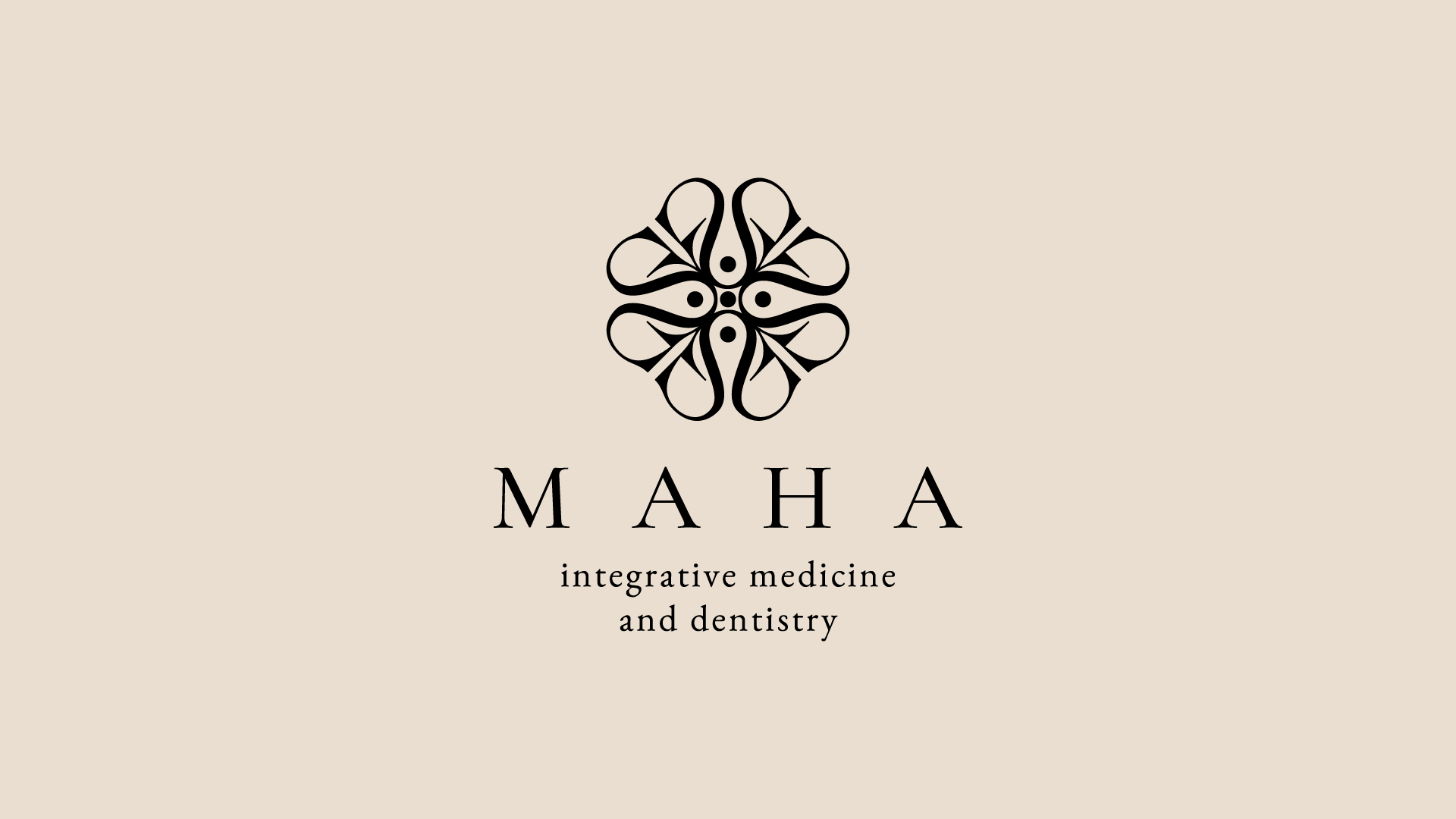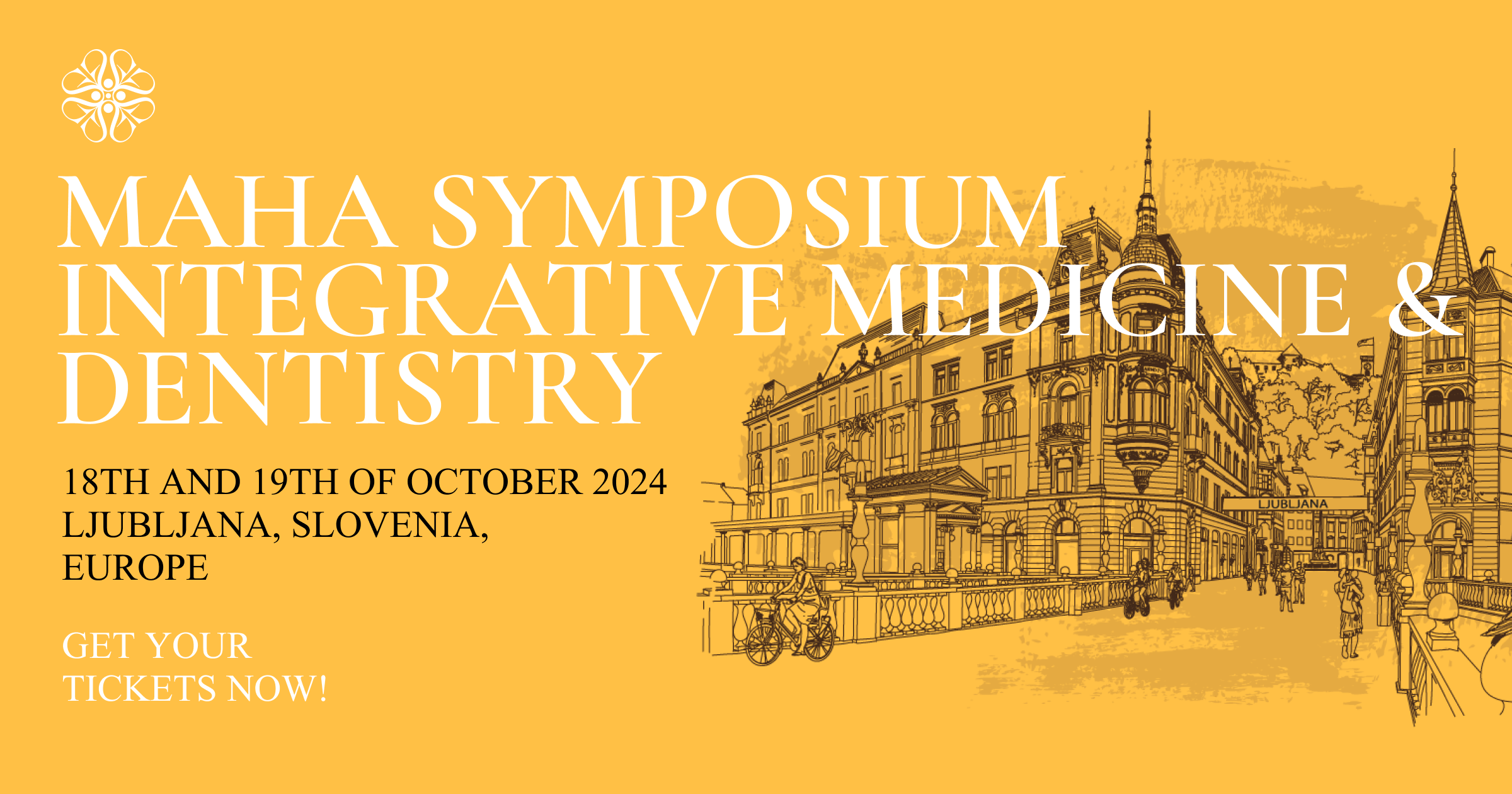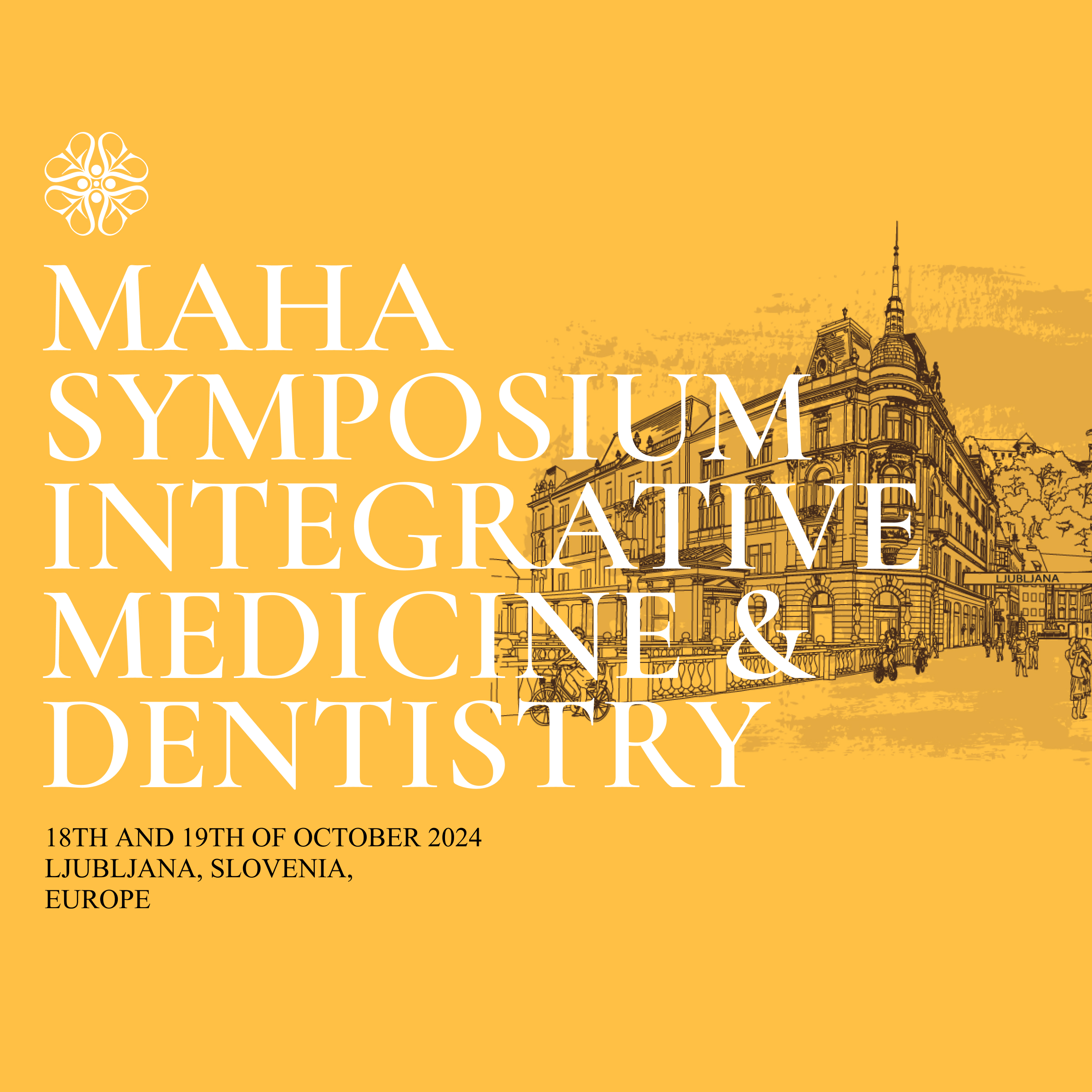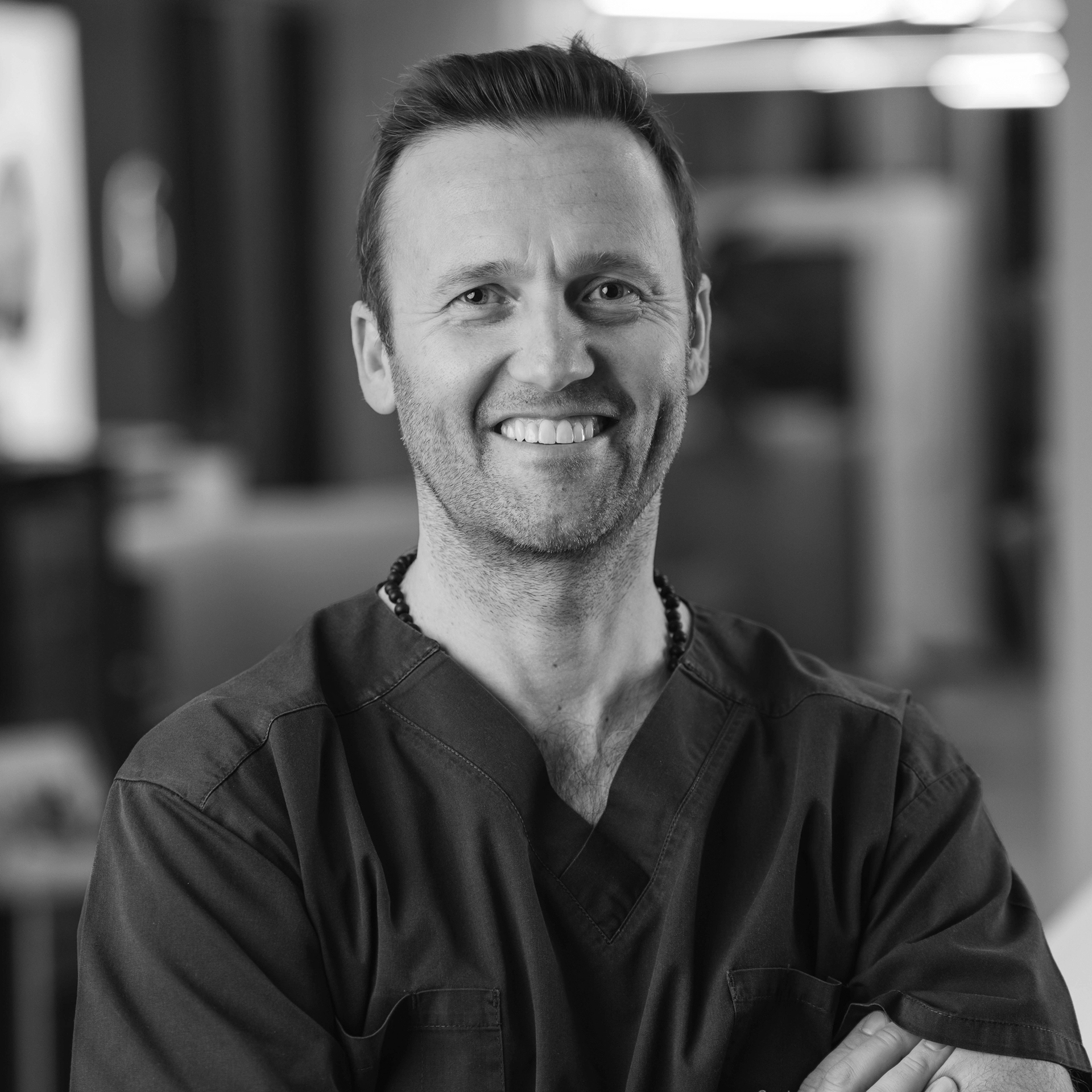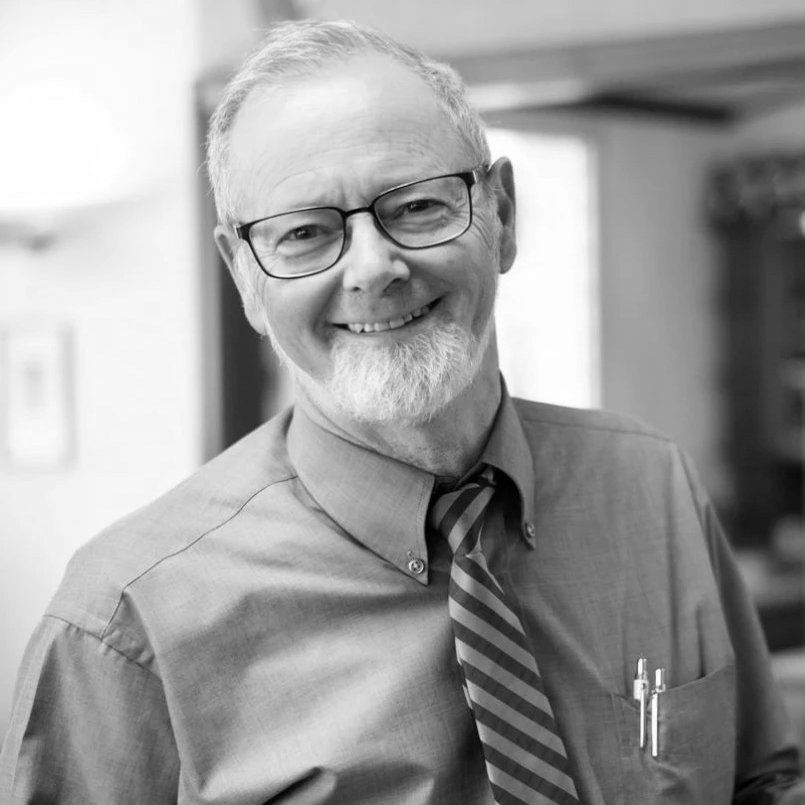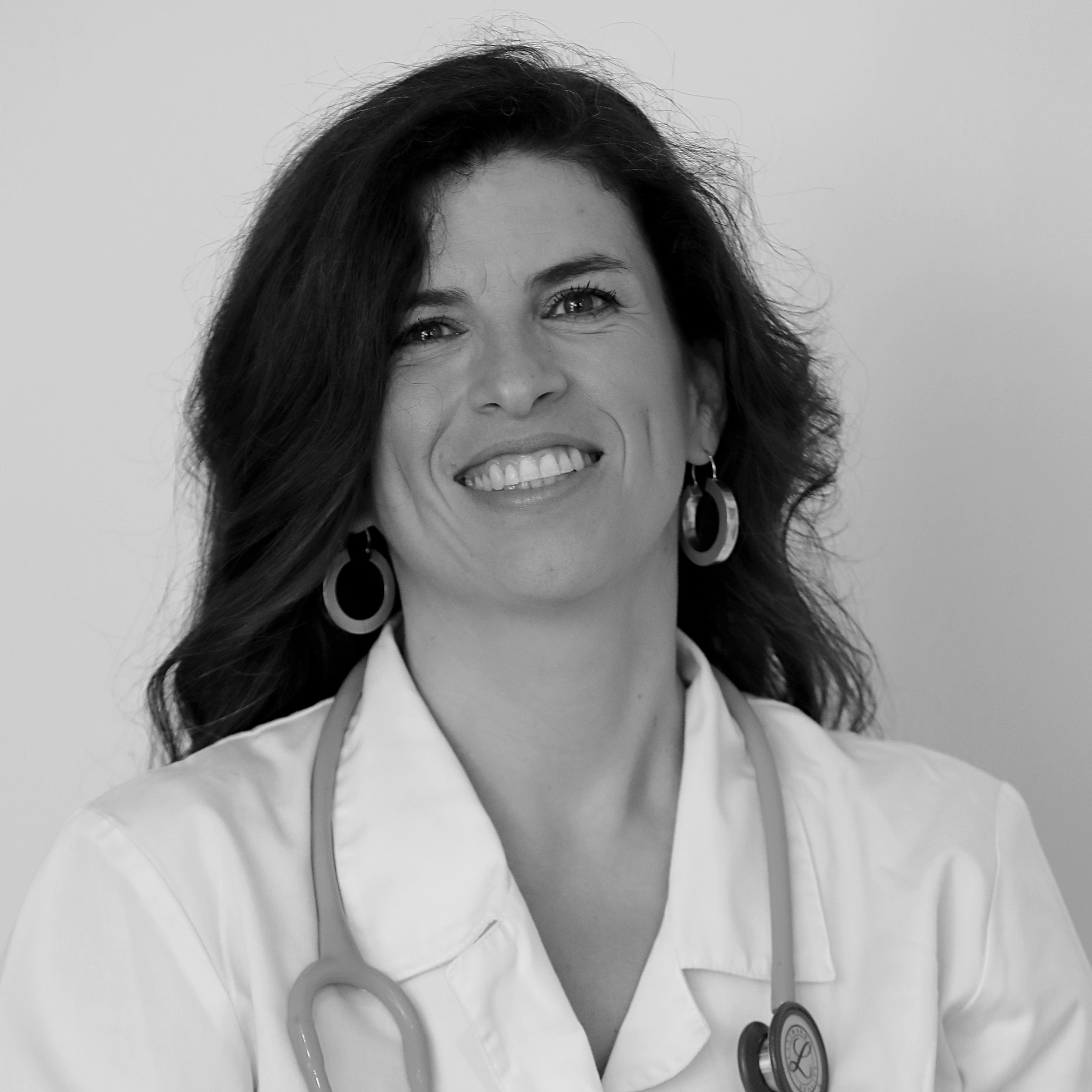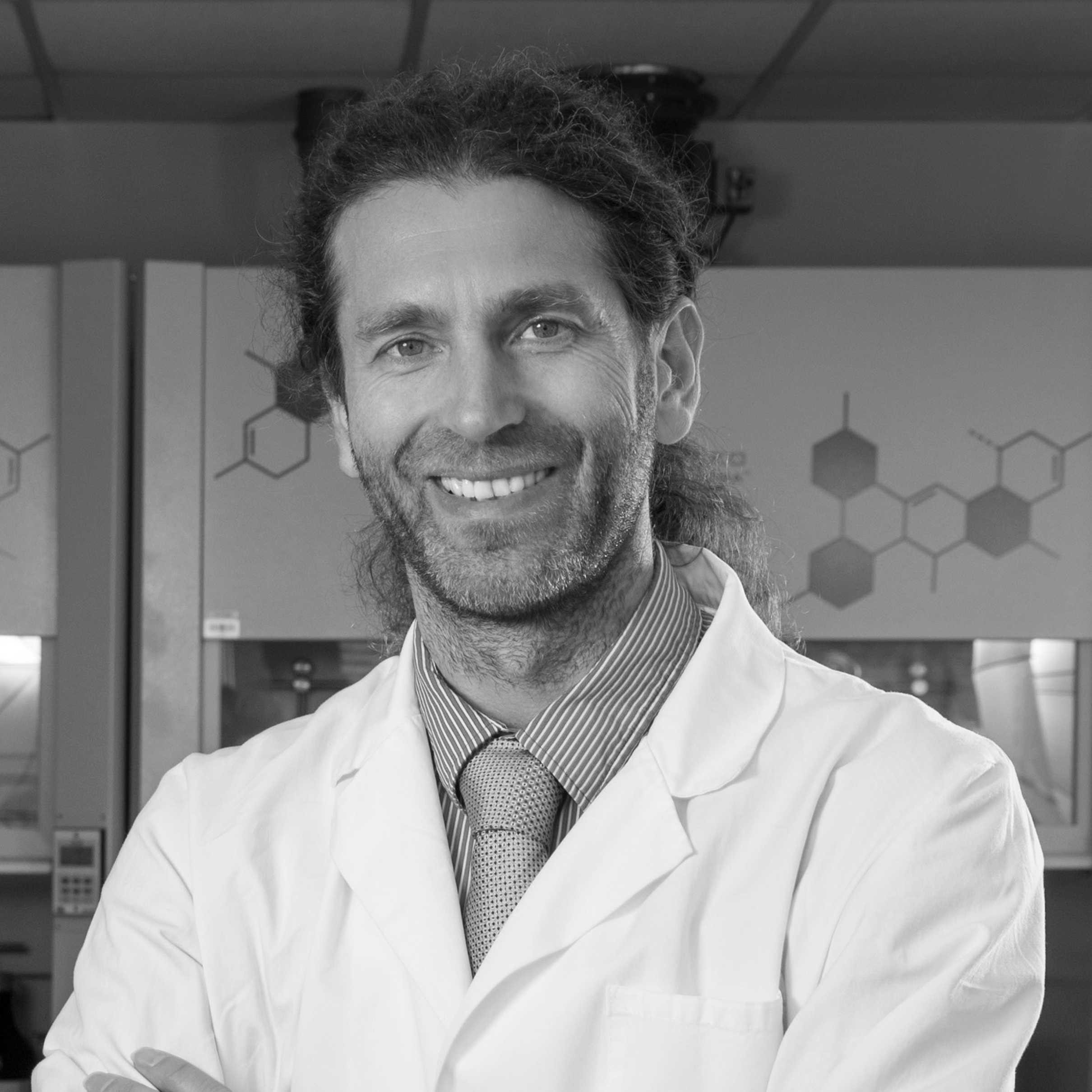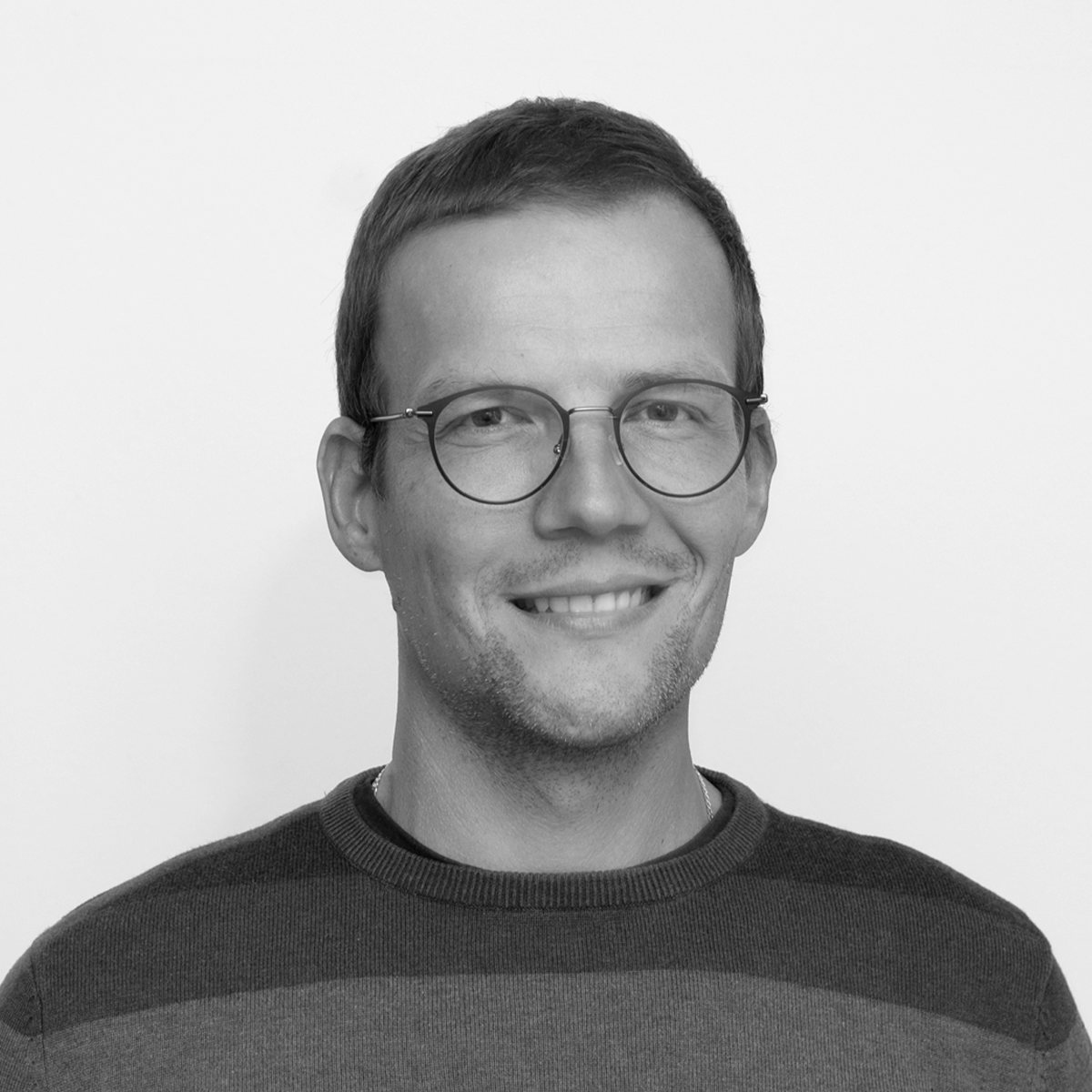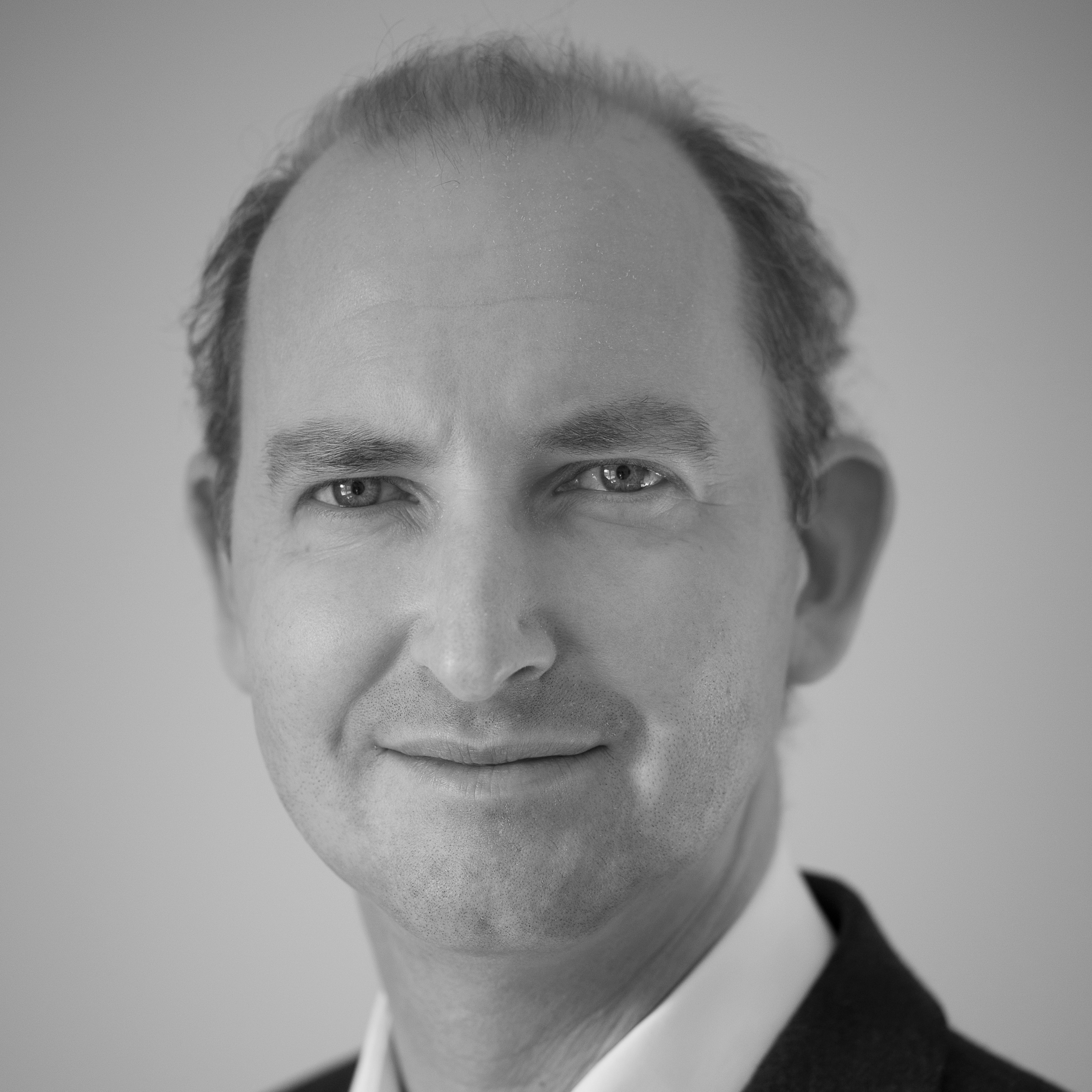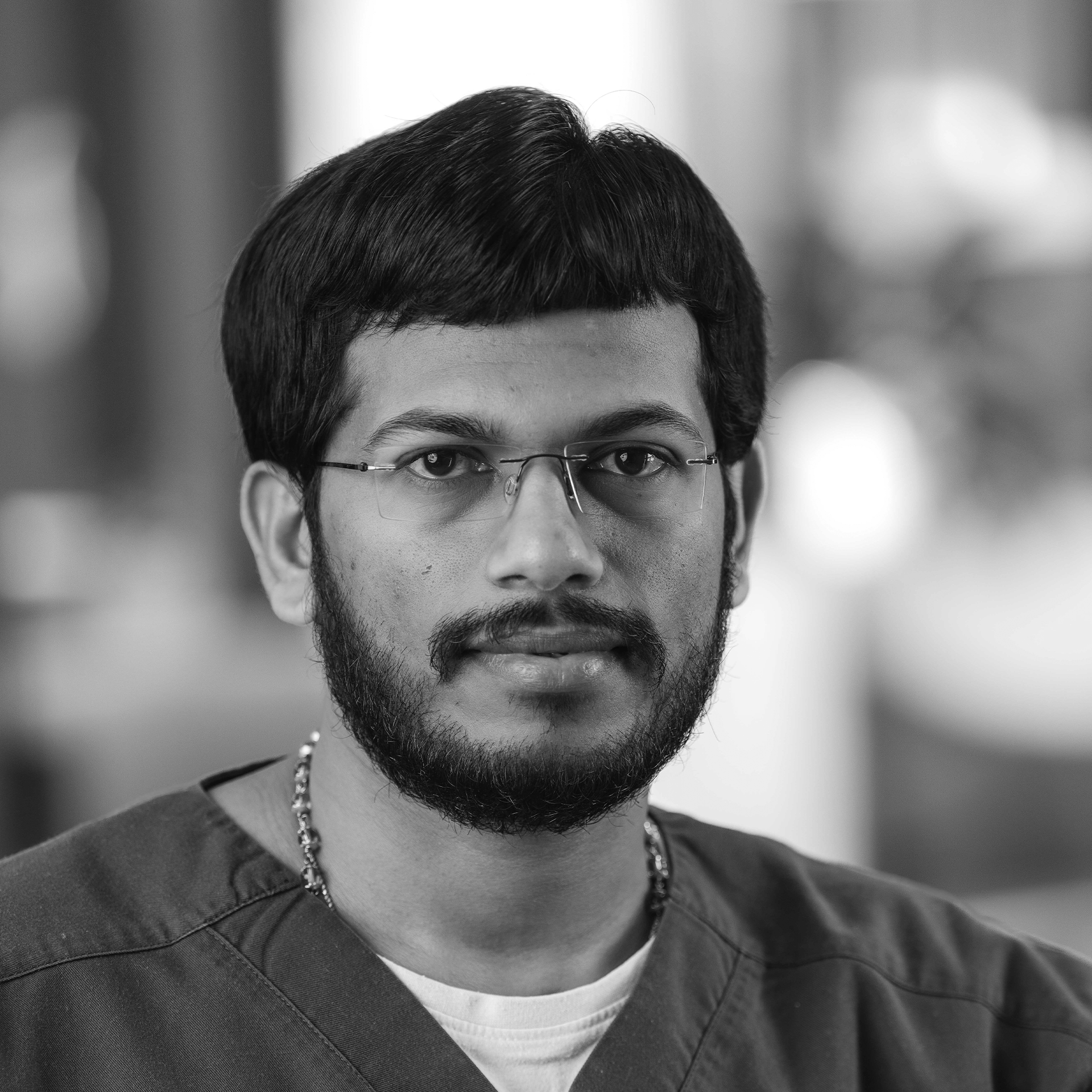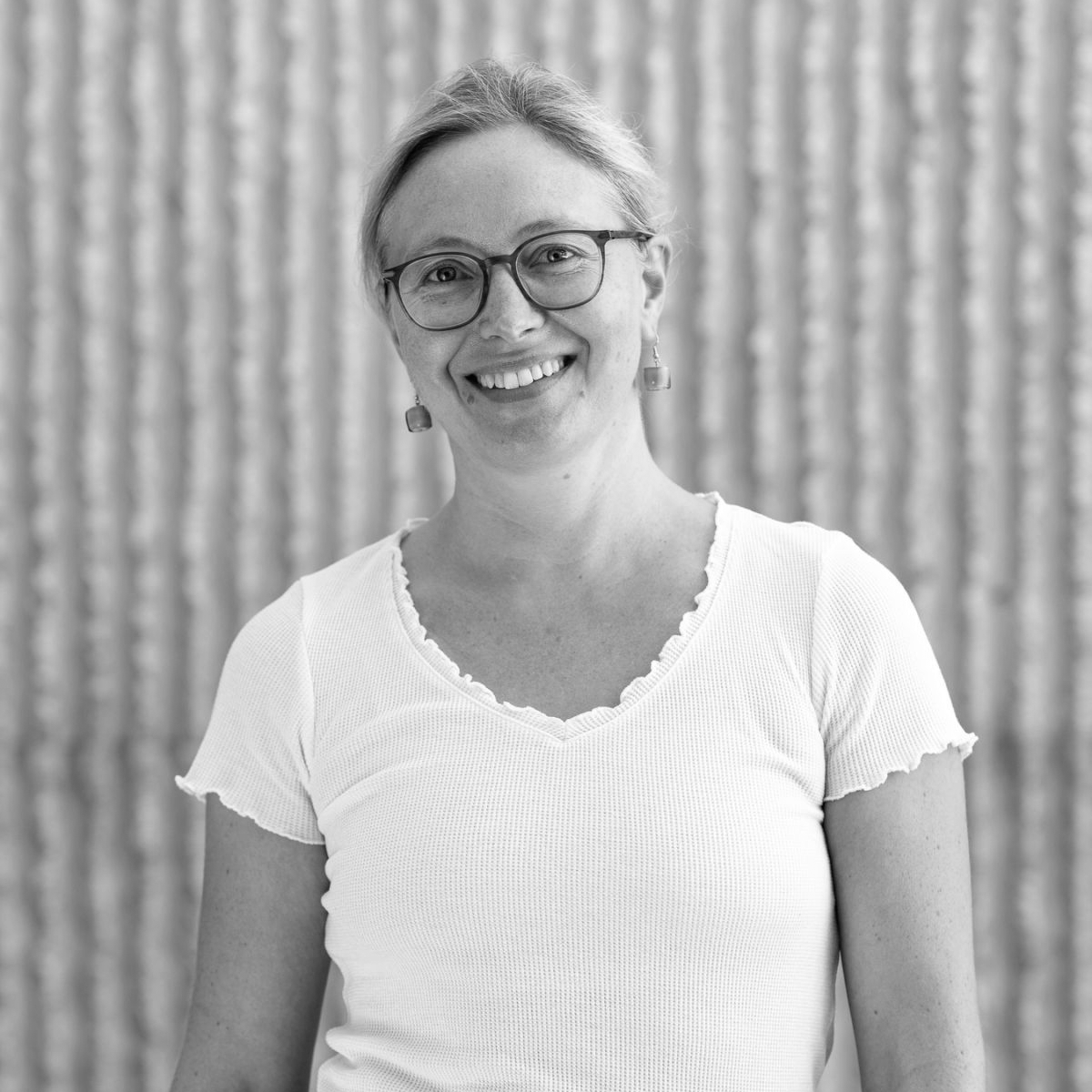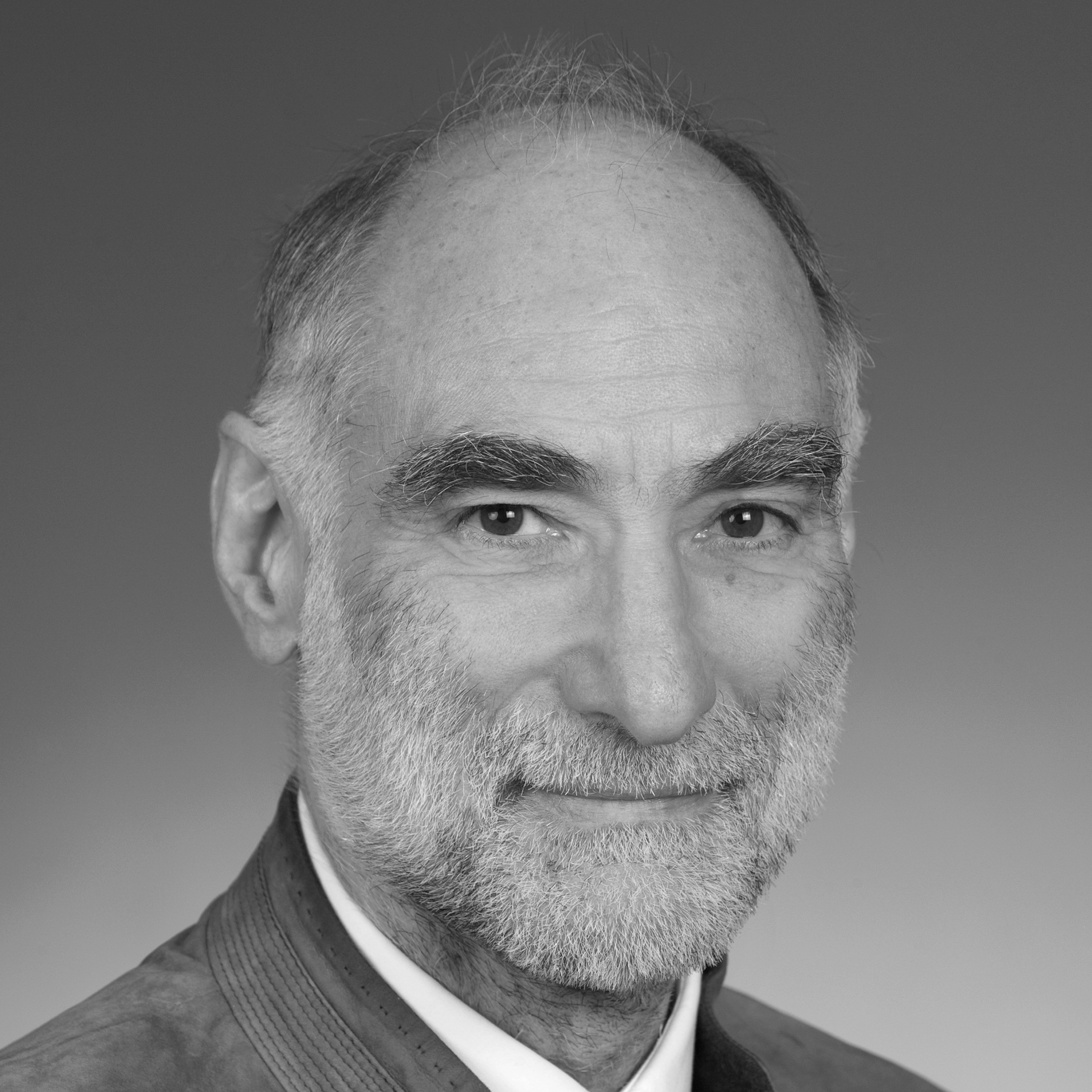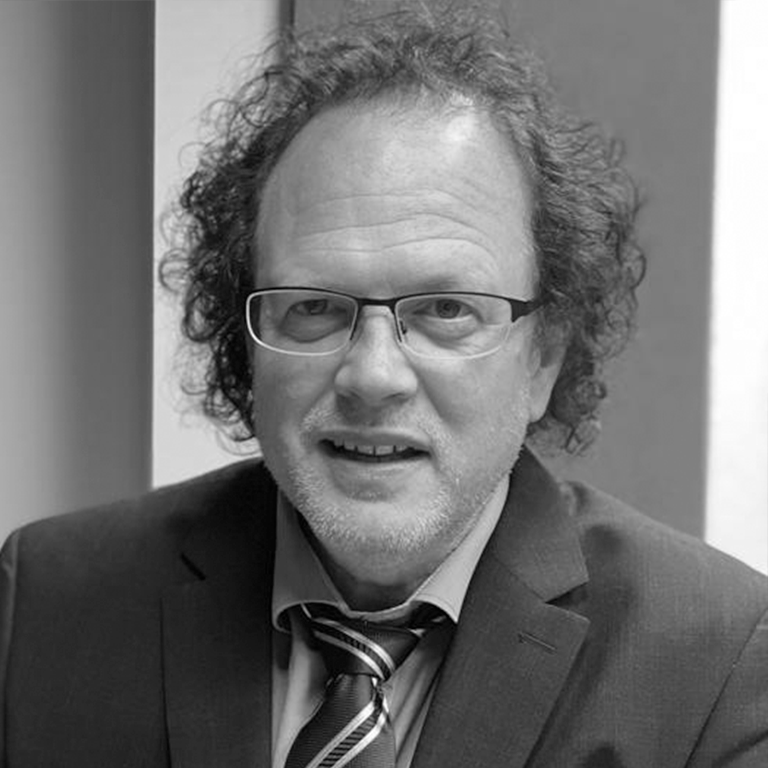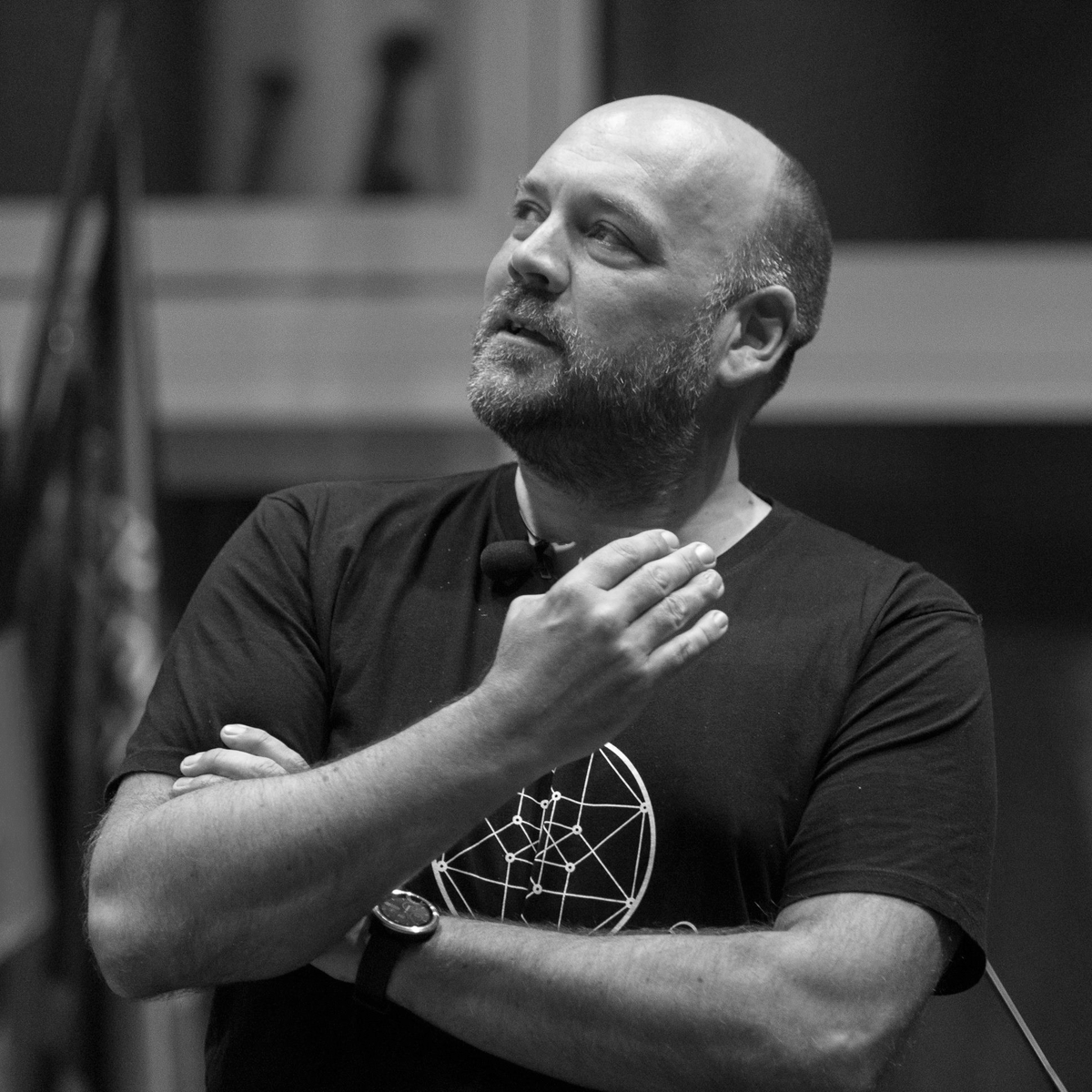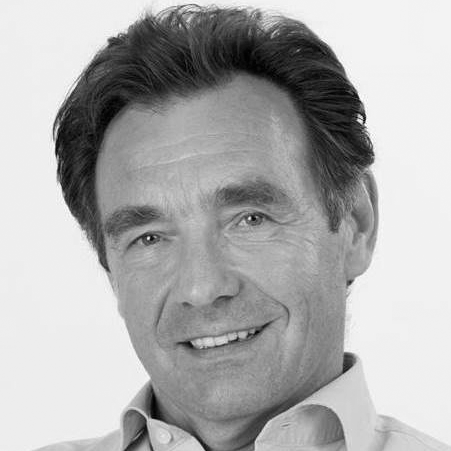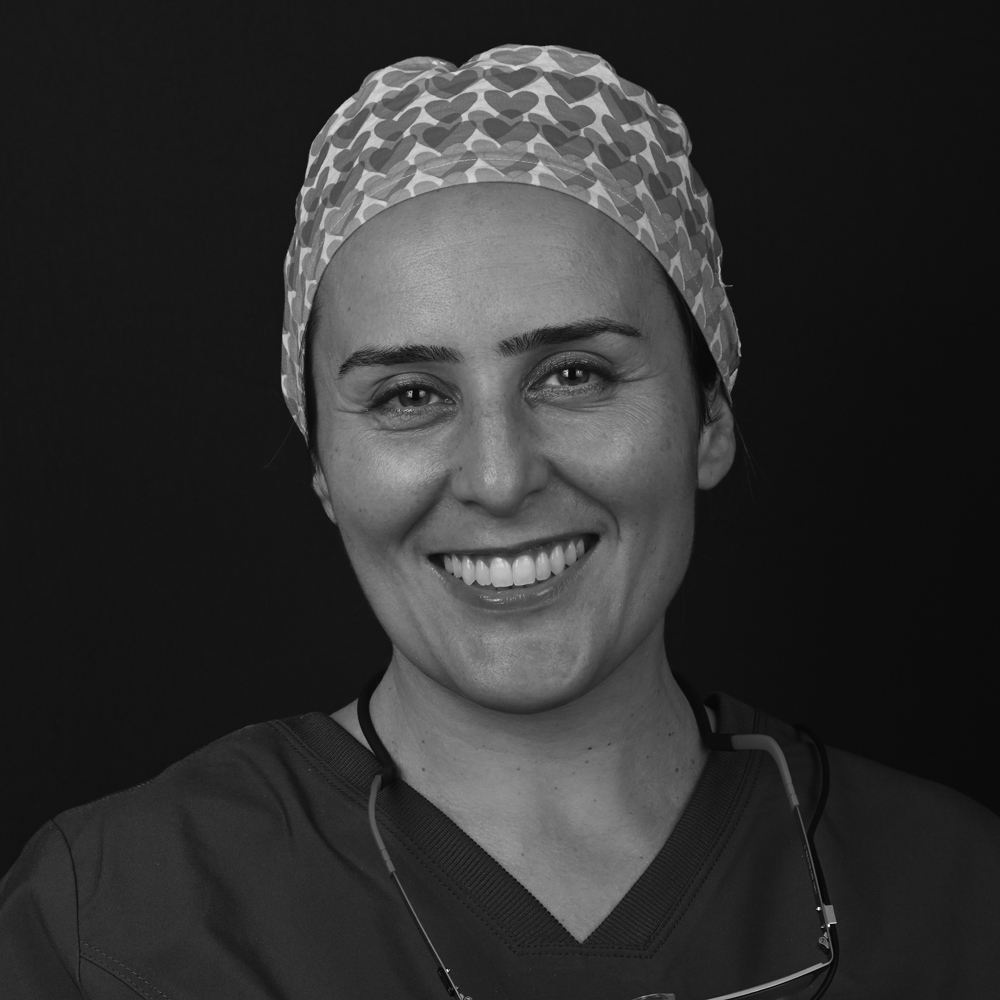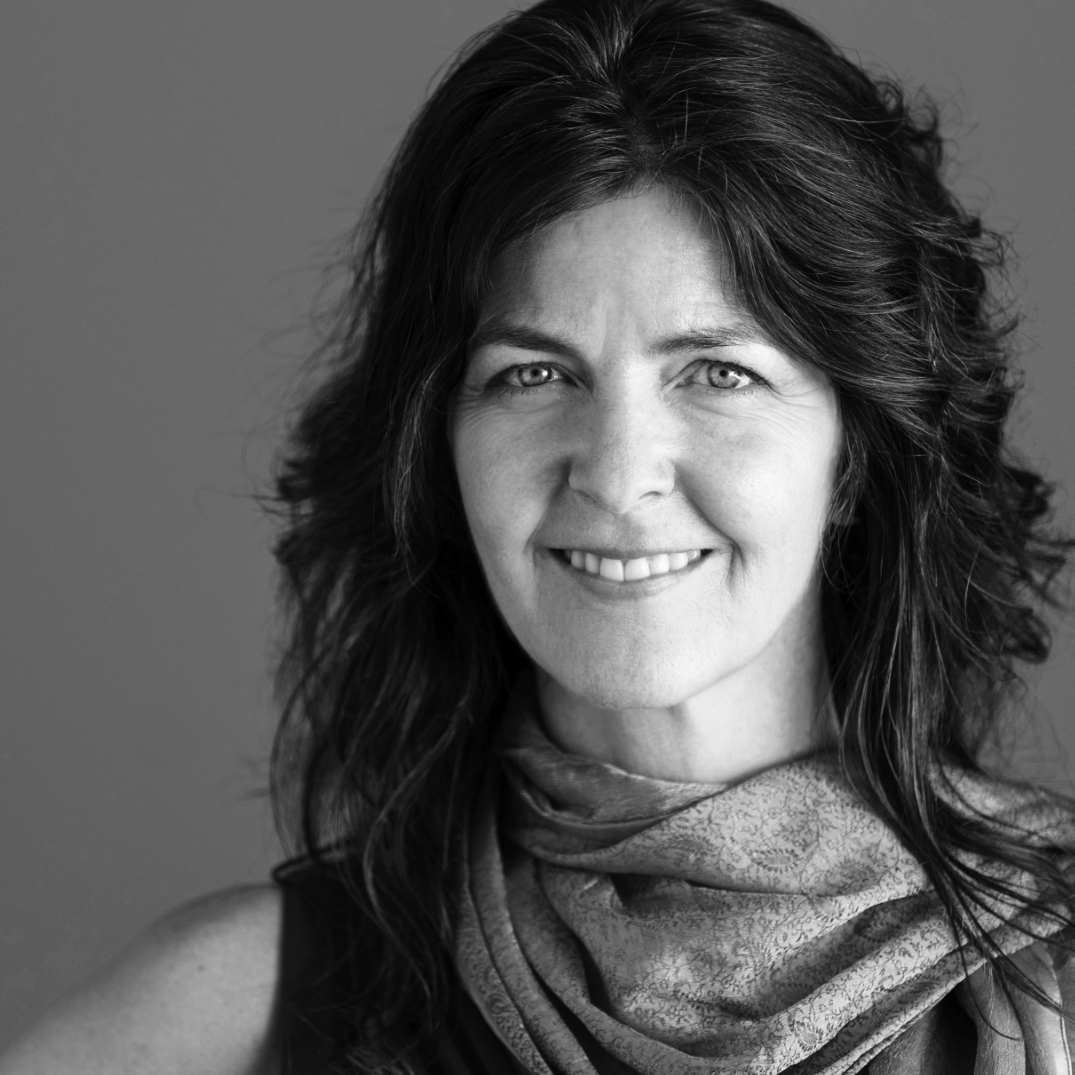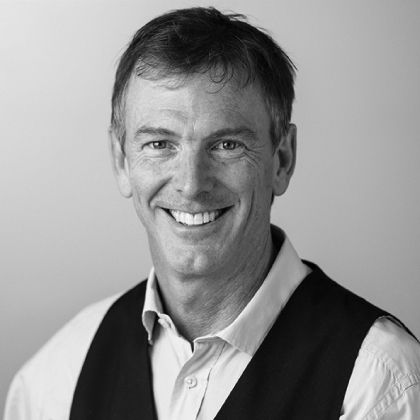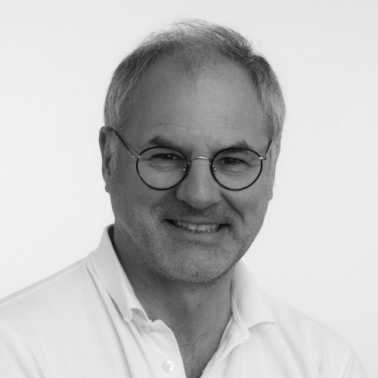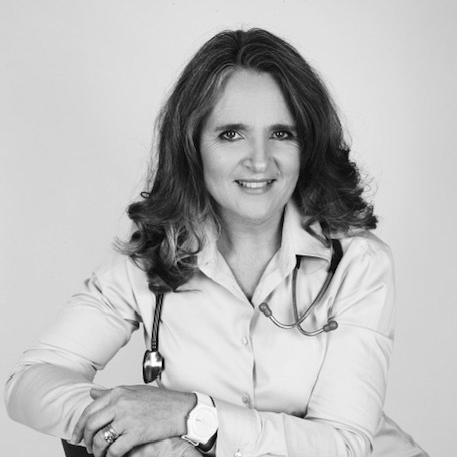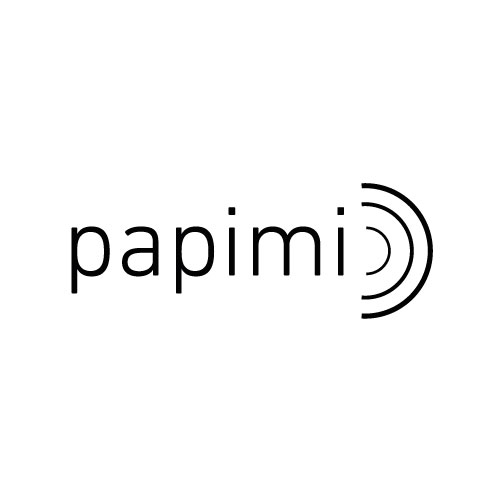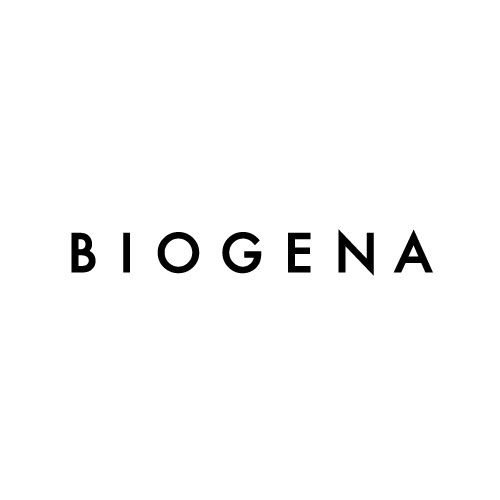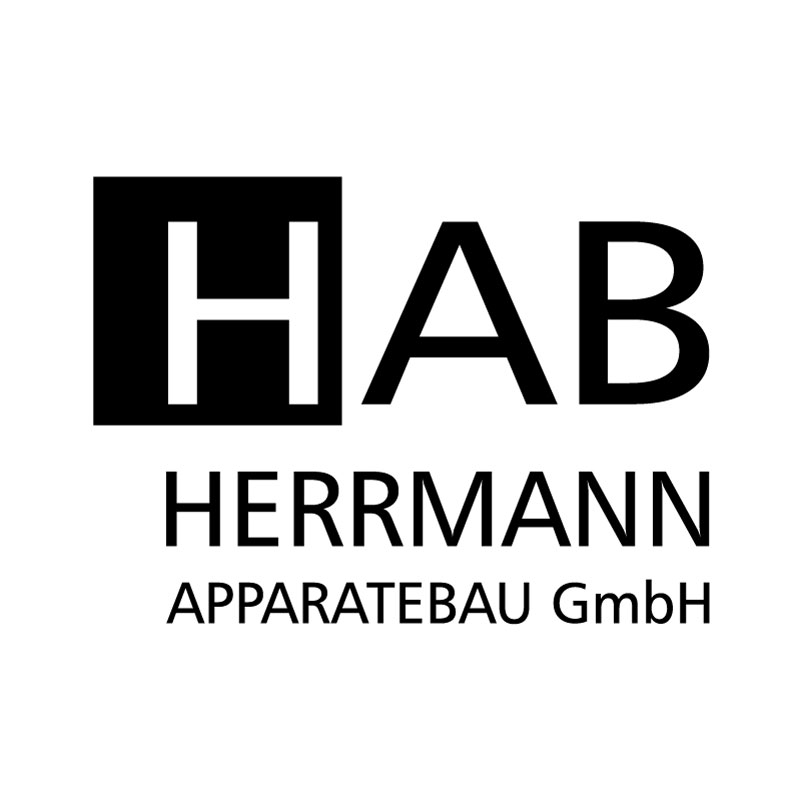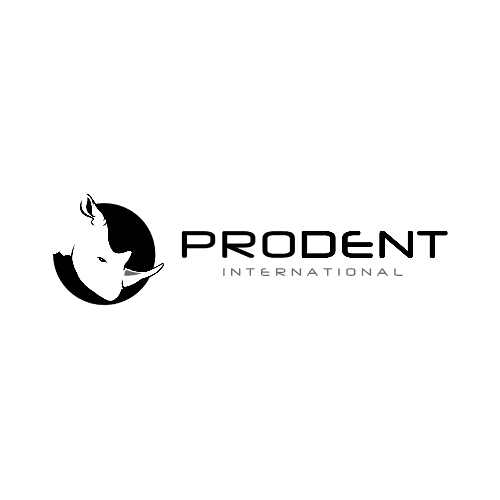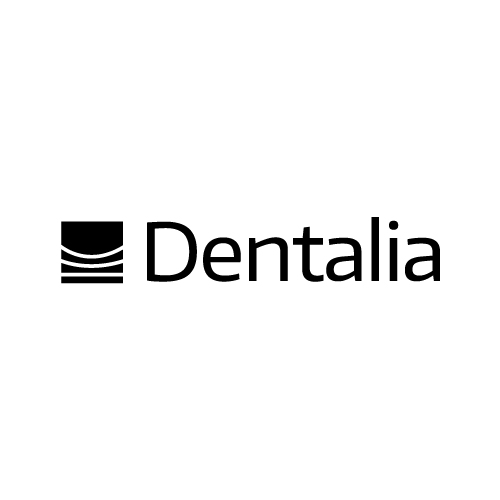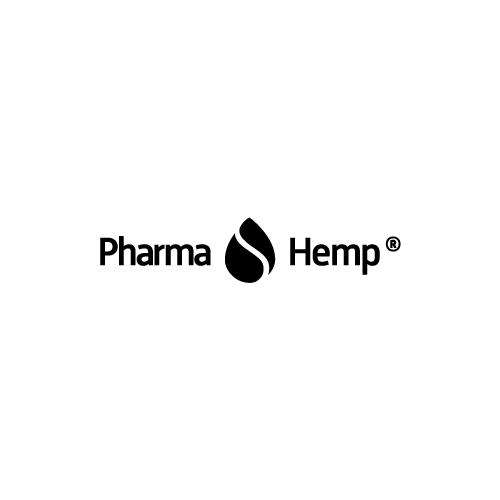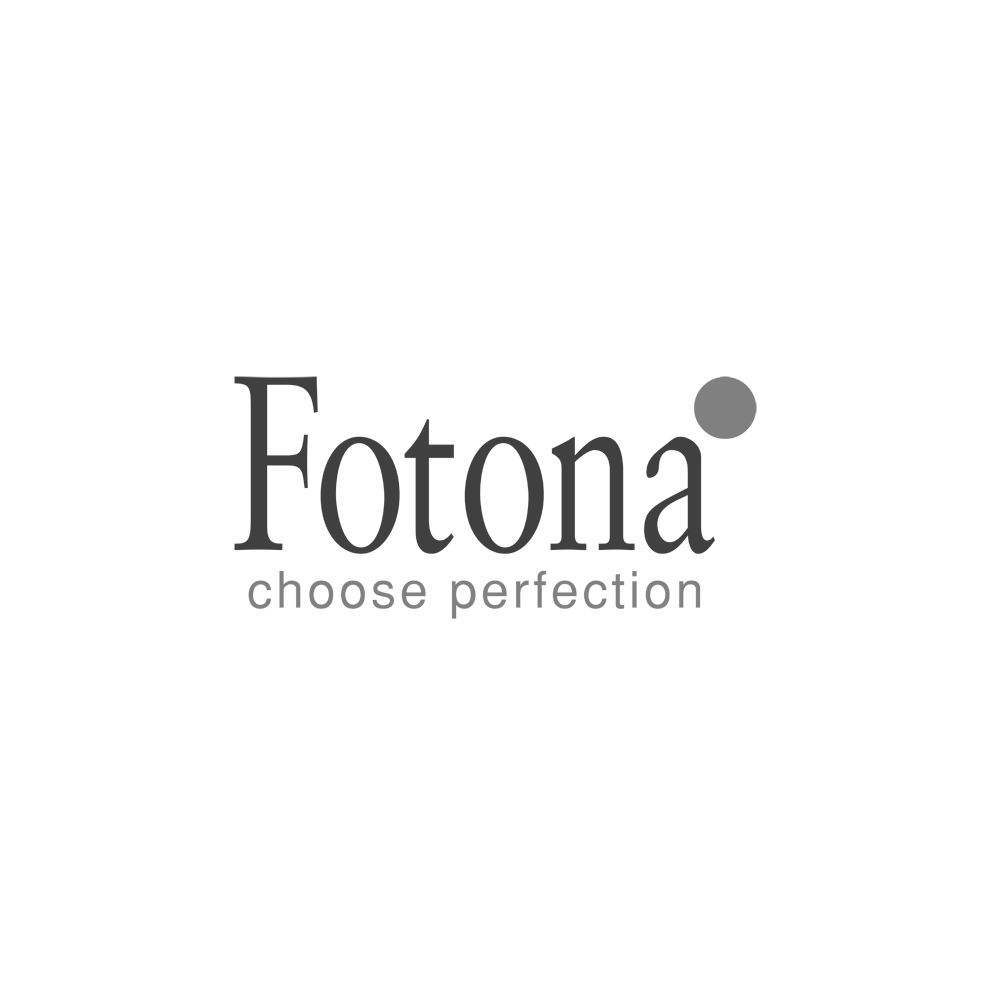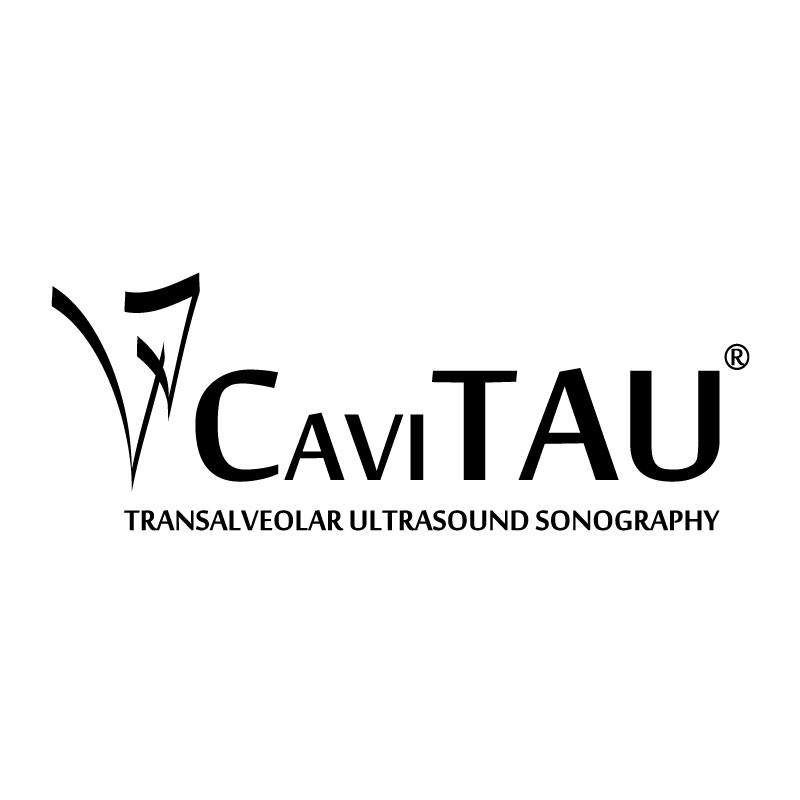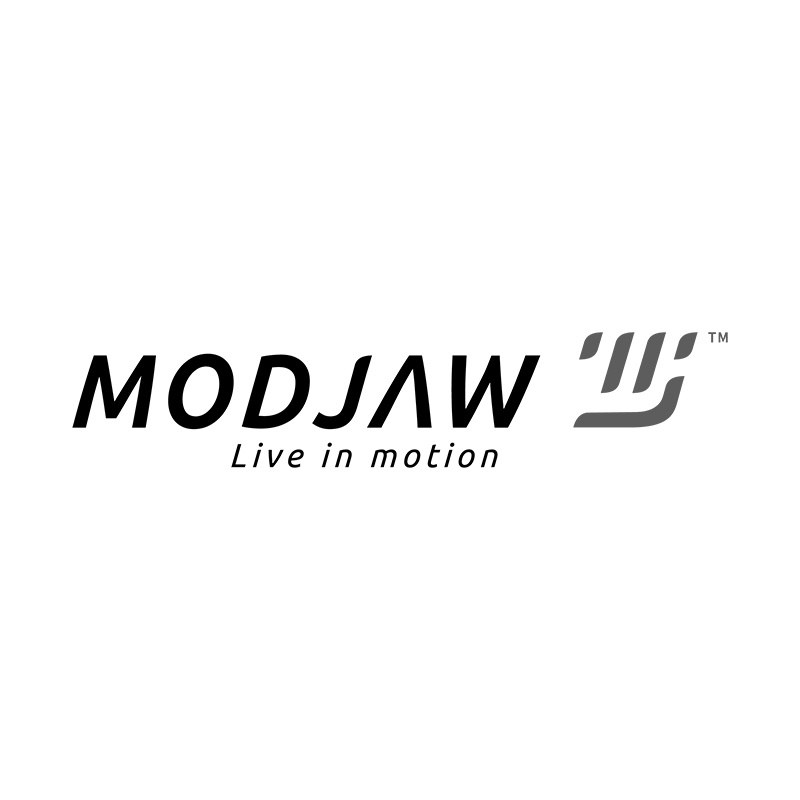Integrative Oncology
What Does the Term Integrative Oncology Mean?
Integrative means inclusive, forming a whole from different parts or fields. An integrative approach in medicine and oncology is holistic,incorporating approaches and methods from both classical medicine and complementary (formerly known as alternative) methods.
All this is aimed at providing support to the diseased individual, who is at the center of integrative care. Classical medicine has its place in the treatment of cancer. With its methods, such as surgical procedures, chemotherapy, and radiation, it has helped many people either overcome the disease or alleviate the burden and difficulties caused by it. Unfortunately, classical medicine does not provide answers and does not address areas that are inherent and important to every person, such as diet, sleep patterns, relationships in which an individual operates, work environment, connection with one’s own body and emotions, and so on. It is precisely these areas that are often the essential breeding ground where disease arises. Therefore, it is beneficial to deal not only with the consequences of a lifestyle but also to look into the core of the emergence of an illness. Classical medicine extinguishes the fire, while integrative medicine, in addition to extinguishing the fire, recognizes and removes all the factors that led to the fire.
Comprehensive care focuses not only on the disease that a person has but on the person as a physical, spiritual, and energetic being. As Sir William Osler stated at the beginning of the century, “A good physician treats the disease, a great physician treats the person who has the disease.”
A person who has fallen ill with cancer certainly deserves holistic care. Cancer is a disease that still carries with it a tinge of taboo and a death sentence. However, by listening, understanding, and getting to know the entire human being, we can identify which processes contributed to the emergence of this disease. This way, we can help stop or even reverse the processes that drive the cancer disease.
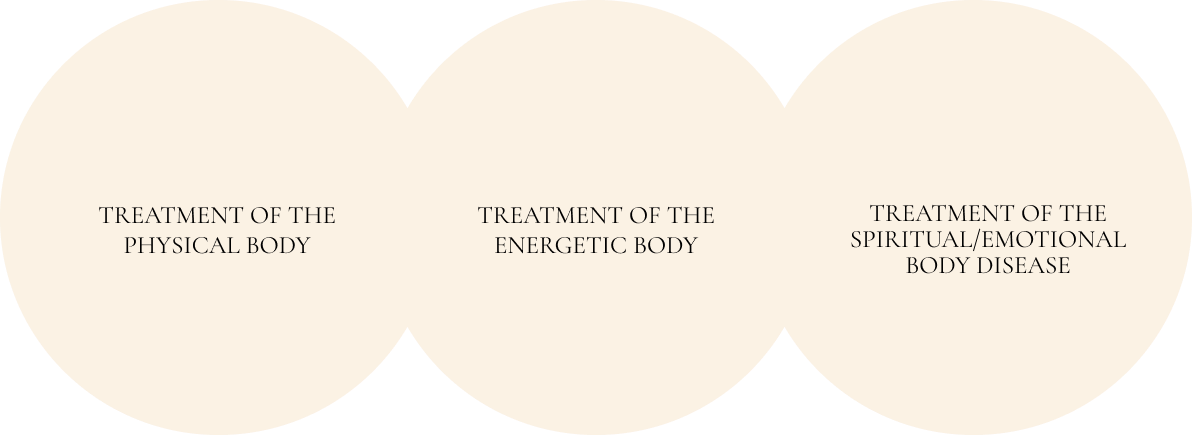
Treatment of the Physical Body
Nutritional Counseling, Support, and Laboratory Results
We are what we eat. If we consume high-quality, balanced food, we feel accordingly. It is important what, how much, and when we introduce substances into our body. Based on your current diet, we will recommend changes in meal composition if needed.
As part of a holistic approach, we will examine your levels of essential minerals, vitamins, the state of your gut flora, heavy metal burden, hormonal balance, etc., depending on your issues. All laboratory tests are conducted in collaboration with an integrative laboratory in Germany.
Upon receiving the results, we will discuss which diet regimen and dietary supplements would be advisable in your case to support your body in the healing process.
Immune System Support
The immune system is the body’s first line of defense against foreign invaders, which can include viruses, bacteria, parasites, or tumor cells.
Each of us has in every moment circulating tumor cells in the body. However, most of these are recognized and destroyed by our immune system, preventing the development of clinically visible disease. When the immune system is weak, ineffective, or too many immune cells are ‘occupied’ elsewhere (e.g., immune reactions to food irritants, vaccines, chronic inflammatory processes in the teeth), cancer cells have every opportunity to grow and multiply unnoticed. Therefore, an effective immune system is the primary mechanism by which we can limit and reduce cancer.
Classical medicine increasingly recognizes the role of the immune system, leading to the use of more drugs that stimulate immune cells (immunotherapy, which is expanding in areas of lung, kidney cancer, melanoma, etc.). Integrative oncology bases its practices on studies, similar to classical medicine, where guidelines for treating specific cancers are set or modified based on studies. In integrative oncology,
natural substances are often central, such as curcumin, high doses of vitamin C, white mistletoe, boswellia, resveratrol, GC-MAF, to name a few. Research is also being conducted on cancer and other substances like dichloroacetate and salinomycin.
Ozone Therapy
Ozone (O3) is a colorless gas composed of three oxygen atoms. It can be administered rectally or intravenously, with the latter being recommended for cancer diseases. Cancer cells thrive in low-oxygen environments, so higher oxygen concentrations affect the cell’s metabolism, destabilize it, and lead to cell death (apoptosis). Even during classical chemotherapy treatment, it supports the body and helps reduce side effects of chemotherapy.
Ionic Induction Therapy (PAPIMI)
The device uses ionic potential to affect the charge on the cell membrane, crucial for the transfer of substances in and out of the cell. A healthy cell membrane is a prerequisite for the cell’s processes to function harmoniously, as it allows the cell to receive all necessary substances and expel harmful waste. PAPIMI supports these processes. The device is widely used in rehabilitation medicine to speed up the healing of fractures and injuries. Recent studies highlight the importance of PAPIMI for symptoms of long COVID. Its use also improves blood circulation, resulting in better oxygen supply to cells.
Hyperthermia - Local and Systemic
Hyperthermia involves elevated temperature, either locally at the tumor site or systemically, where the entire body is heated to 39-41°C and maintained at this temperature for a certain period. It is particularly recommended during classical treatment as it improves blood flow, enhancing drug delivery to the affected area. Classical medicine primarily uses hyperthermia locally or regionally (HIPEC,
intracavitary, limb perfusion, etc.).(https://www.thelancet.com/journals/lanonc/article/PIIS1470-2045(02)00818-5/abstract, https://f.oaes.cc/xmlpdf/3a9b9e2a-7270-4e98-92a4-841069ff3d9c/2272.pdf
) Systemic hyperthermia not only improves blood flow but also activates the immune system, similar to the fever response during an infection.
Treatment of the Energetic Body
Bioresonance – Based on the fact that every body, organ, cell, and substance has its own frequency (vibration). The goal of the method is to transmit a healing impulse to the body, supporting health and healing.
Reiki – This type of therapy involves transferring cosmic healing energy through a channel, which is the therapist, to the patient or individual with a specific problem.
Tai Chi and Qi Gong – Tai Chi focuses on developing a sense of energy through movements, while Qi Gong focuses more on the sensation of each movement. Both techniques are relaxing, improving flexibility and balance.
Treatment of the Spiritual/Emotional Body
Emotions cannot be separated from the physical body. Increasing research shows that unrecognized, repressed emotions influence disease development. This is called psycho-neuro-endocrino-immunology (PNEI), with Dr. Gabor Mate being a representative of this developing branch of medicine. It explores the connection between the nervous and immune systems and the impact of emotions on individual health.
The fact is that today we are all prisoners of our thoughts and minds.Think about the last time you were without thoughts, just feeling your body? The essence of the techniques listed below is to bring awareness from thinking to feeling. When we feel, we cannot think. Through feeling, we can also connect with our traumas, memories, and
everything we had to suppress as a child to survive. Today, as adults, these defense mechanisms no longer serve us. On the contrary, they represent a cage that unconsciously suffocates and limits us from living to our highest potential. At the same time, they prevent us from awakening the inner wisdom and natural healing ability of the body.
Mindfulness – Teaches us to be present in the moment.
Meditation – Calming the mind and being fully aware.
Hypnosis – Medical hypnosis is an excellent way to deal with unrecognized emotions, process, and integrate them. By relaxing the body, attention is directed towards experiencing feelings. With a calm mind, the doors of the subconscious open, providing an opportunity for traumas, memories, or inappropriate behavior patterns to surface and be changed. Hypnosis is also extremely effective in managing side effects of treatment (nausea, vomiting, poor appetite, anxiety, insomnia, etc.). In the hands of a trained therapist, hypnosis is a process with no adverse effects. Source
Cognitive Behavioral Therapy – A therapeutic approach that seeks to uncover the connection between thinking, emotions, and behavior.
Yoga – Many report feeling calmer and coping better with the disease and side effects of treatment while practicing yoga. Source
All the therapies mentioned in bold are available at our center.
For additional information and sources, please refer to the provided links:
https://journals.sagepub.com/doi/10.1177/15347354241226667#:~:text=We%20found%209%20preclinical%20studies,in%20a%20dose%2Ddependent%20manner
https://www.integrativecancerdoc.com/dca-dichloroacetate.html
https://www.ncbi.nlm.nih.gov/pmc/articles/PMC9143079/
https://ascopubs.org/doi/10.14694/EdBook_AM.2014.34.233
MAHA
Slovenska cesta 54, 1000 Ljubljana, Slovenija, Europe
Tel. +386 51 248 888
email: info@maha.clinic
Mon, Tue, Wed: 8:00 – 15:00
Thu: 12:30 – 20:00
Fri: 8:00 – 13:30
© Copyright 2024 – Maha / made by visualbraingravity
events
Maha Lectures
Biological dentistry: fundamentals and effective Methods: Preventive measures and therapeutic approaches to promote bone and soft tissue healing.
This abstract explores the pivotal role of the microbiome and osteoimmunology as key factors influencing overall systemic health in the context of dentistry.
Unveiling the Oral Systemic Axis: Exploring the Role of Microbiome and Osteoimmunology in Biological Dentistry
Biological Dentistry emerges as a burgeoning field acknowledging the intricate interplay between oral well being and systemic health.
Biological Dentistry is an emerging field that recognizes the interplay between oral health and systemic health.
This abstract explores the pivotal role of the microbiome and osteoimmunology as key factors influencing overall systemic health in the context of dentistry.
MAHA
Slovenska cesta 54, 1000 Ljubljana, Slovenija, Europe
Tel. +386 51 248 888
email: info@maha.clinic
Mon, Tue, Wed: 8:00 – 15:00
Thu: 12:30 – 20:00
Fri: 8:00 – 13:30
© Copyright 2024 – Maha / made by visualbraingravity
maha event tickets
MAHA
Slovenska cesta 54, 1000 Ljubljana, Slovenija, Europe
Tel. +386 51 248 888
email: info@maha.clinic
Mon, Tue, Wed: 8:00 – 15:00
Thu: 12:30 – 20:00
Fri: 8:00 – 13:30
© Copyright 2024 – Maha / made by visualbraingravity
maha-symposium
Maha Symposium INTEGRATIVE MEDICINE & DENTISTRY
18th and 19th
of October
2024
Ljubljana Castle, Slovenia,
Europe
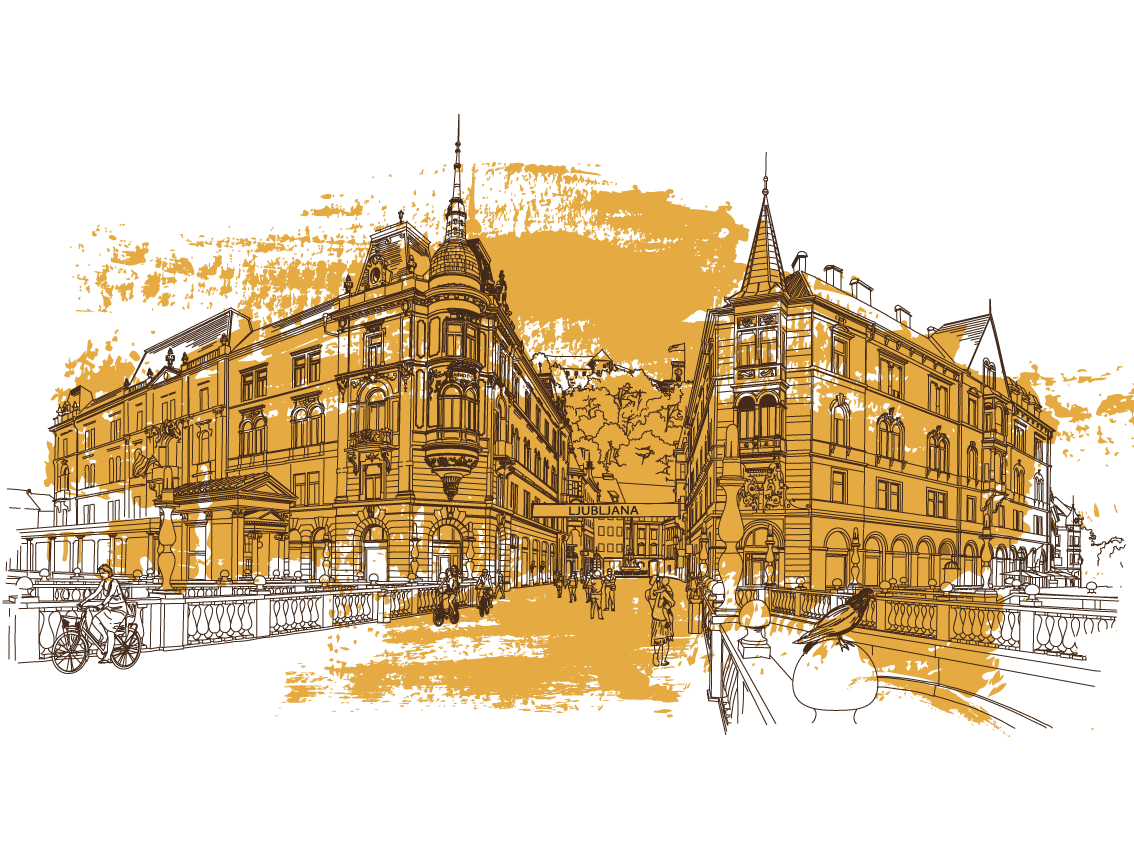
Experience Ljubljana Castle
Explore fresh horizons at the Maha Symposium on Integrative Medicine & Dentistry, within the captivating Ljubljana Castle on October 18th and 19th.
Immerse yourself in enlightening discussions, experience collaborative initiatives, and delve into the integration of Western medicine, biological approaches, Ayurveda, and more. Shape the future of holistic healthcare amid the castle’s historical backdrop, complemented by a nutritious selection of food and drink. Enjoy a jazz concert on Friday night, discover cutting-edge technology at the exhibition, and engage with international lecturers.
Event Highlights
Funicular Railway tickets to and from the castle are included: the modern and unobtrusively designed funicular, which complements the traditional cultural identity of the Ljubljana Castle, is popular with both domestic and foreign visitors. It is particularly attractive during fine weather, when it offers spectacular views of the city, and it is indispensable as a fast and comfortable connection with the old town centre. In seeking to preserve the natural environment in the wider area of the Castle Hill, the funicular is the right choice, while at the same time being an exciting experience with which to begin your visit to the castle.
Jazz Concert on Friday Night included at the Castle Jazz Club “Good live music is in itself a luxurious experience, but when the relaxed gathering of music connoisseurs takes place in the unique setting of the Castle’s Rock Hall, the concert becomes an unforgettable experience. Perhaps it is because you are closer to the stars on the Castle hill and the view of Ljubljana by night is a wonderful conclusion to the evening.”
Food & Drink: Indulge in healthy, vegan coffee breaks and a delightful dinner, included in your ticket. Enjoy the perfect blend of taste and well-being.
CME points: CME credits have been applied for. Details will follow.
Programme Highlights
Stay tuned for the detailed program, to be unveiled closer to the event; further specialized topics will be explored in a series of smaller events with specific focuses planned in 2025.
| Date | Time | Title | Speaker |
| 18.10.2024 | 08:00-08:30 | OPENING WORDS | Dr. med. dent. Sebastjan Perko, Phd. |
| 18.10.2024 | 08:30-09:15 | BIOLOGICAL MEDICINE: A NEW PARADIGM – UNDERSTANDING THE PRINCIPLES AND PRACTICES. | Dr. med. Thomas Rau |
| 18.10.2024 | 09:15-10:00 | ADVANCEMENTS IN INTEGRATIVE MEDICINE – LOOKING AT OUR INNER WORLD. | Dr. med. Ana Moreira |
| 18.10.2024 | 10:00-10:45 | Coffe Break | |
| 18.10.2024 | 10:45-11:30 | HERBAL MEDICINE IN MODERN PRACTICE – INTEGRATING TRADITIONAL KNOWLEDGE WITH CONTEMPORARY SCIENCE. | Prof. Samo Kreft, M. Pharm., Phd. |
| 18.10.2024 | 11:30-12:15 | A GLANCE AT INDIVIDUALISED CLASSICAL HOMEOPATHY THROUGH A CASE OF MIGRAINE AND PINEAL GLAND CYST – A CASE REPORT. | Dr.med. Katarina Lucija Glas |
| 18.10.2024 | 12:15-13:00 | INTEGRATING AYURVEDA & BIOLOGICAL MEDICINE. | Ajil Kunhumbidukka Veettil, B.A.M.S, PGDY, RAV (General Medicine), MSc (Yoga Science) |
| 18.10.2024 | 13:00-14:00 | Lunch | |
| 18.10.2024 | 14:00-14:45 | BIORESONANCE AS A HOLISTIC TOOL FOR FINDING THE REAL CAUSE OF A DISEASE. | Dominik Golenhofen, univ.dipl.ing.grad. dipl.hol.ener.med. |
| 18.10.2024 | 14:45-15:30 | THE FUTURE OF INTEGRATIVE DENTISTRY – EXPLORING THE LATEST TRENDS AND RESEARCH. | Dr. med. dent. Sebastjan Perko, Phd. |
| 18.10.2024 | 15:30-16:15 | Coffe Break | |
| 18.10.2024 | 16:15-17:00 | BIOCERAMICS FOR MINIMAL INVASIVE DENTISTRY. | Prof. Dr. Andraž Kocjan |
| 18.10.2024 | 17:00-17:45 | RESTORATIVE MATERIALS IN INTEGRATIVE DENTISTRY: BIOCERAMICS, COMPOSITES AND ADHESIVES | Dr. med. dent. Ana Sezinando, Phd. |
| 18.10.2024 | 17:45-18:30 | BIOLOGICAL DENTISTRY: THE TIPPING POINT IN HUMAN HEALTH | Dr. med. dent. John Augspurger, NMD, IBDM |
| 18.10.2024 | 18:30-19:45 | Dinner | |
| 18.10.2024 | 19:45-22:00 | Concert at the Castle Jazz Club | |
| *** | |||
| 19.10.2024 | 08:15-09:00 | THE SMOULDERING FIRE IN THE JAWBONE ? SYSTEMIC DISEASES AND NEGLECTED RANTES/CCL5 INFLAMMATION DETECTED BY ULTRASONOGRAPHY. | Dr. Dr. PhD-UCN Johann Lechner |
| 19.10.2024 | 09:00-09:45 | DEFINING INTEGRATIVE ONCOLOGY. | Dr. med. Jana Pahole |
| 19.10.2024 | 09:45-10:30 | Coffe Break | |
| 19.10.2024 | 10:30-11:15 | MULTIMODULAR CANCER TREATMENT | Dr. med. Thomas Rau |
| 19.10.2024 | 11:15-12:00 | EXPLAINING INTEGRATIVE MEDICINE TO THE AVERAGE JOE – DEVELOPING A COMMON COMMUNICATION PLATFORM | Zenel Batagelj |
| 19.10.2024 | 12:00-13:00 | Lunch | |
| 19.10.2024 | 13:00-13:45 | NUTRITION AND DIGESTIVE HEALTH: MODERN MAYR MEDICINE IN INTEGRATIVE CARE. | Prof. Dr. med. Harald Stossier |
| 19.10.2024 | 13:45-14:30 | THE NEWLY DESCRIBED POSTURAL DISORDER AS AN EARLY WARNING SYSTEM FOR CHRONIC SYSTEMIC DISEASES. | Dr. med. Christoph J. Bäumer, DO (EROP/DAAO), MSc paed ost |
| 19.10.2024 | 14:30-15:15 | ENABLING LONGEVITY THROUGH DETOXIFICATION – LEADING TOWARDS CELLULAR HOMEOSTASIS BY FREEING METABOLIC, IMMUNOLOGICAL AND TRANSPORT PATHWAYS | Dr. med. Marcus Andrew Stanton |
| 19.10.2024 | 15:15-16:00 | Coffe Break | |
| 19.10.2024 | 16:00-16:45 | HUMANS AT THE HEART OF INTEGRATIVE MEDICINE & DENTISTRY | Allyson Baker BA, MA, HHP |
| 19.10.2024 | 16:45-17:30 | PANEL DISCUSSION “THE FUTURE OF HEALTHCARE” | Dr. med. dent. John Augspurger, NMD, IBDM | Dr. med. Ana Moreira | Dr. med. Thomas Rau |Prof. Dr. med. Harald Stossier | Dr. rer. nat. Alexander von Ardenne |
| 19.10.2024 | 17:30-18:00 | CLOSING WORDS | Dr. med. dent. Sebastjan Perko, Phd. |
Would you like to become a speaker for a later event? Please send us your lecture title suggestion and abstract. Our Team at Maha Clinic will be in touch.
Supporters
Sponsors
Exhibitors
papimi
The papimi Ion-Induction Therapy (IIT), created by Prof. DDr. Pappas, leverages intense electromagnetic fields to boost low cell membrane potentials, focusing on restoring natural biochemical pathways for regeneration. With over 30 years in Effective Medicine, it’s a reliable choice in Integrative Medicine and Professional Sports.
BIOGENA
At BIOGENA, we support you in discovering and fully realising your personal potential. For this reason, we develop premium micronutrient supplements in pure substance quality and manufacture them in our own production facility in Austria. As a reliable knowledge partner in the field of health and well-being, it is important to us to enable as many people as possible to live a fantastic life.
HAB
Herrmann Apparatebau GmbH (HAB®) can look back on 40 years of methodically acquired expertise in the development and manufacture of high-quality medical devices. Today, HAB® is one of the market leader in Ozone-Oxygen- and Colon-Hydro-Therapy. Worldwide. What sets us apart are our constantly evolving innovations and the best possible implementation of the highest patient safety standards in our competence centre – for safe, economical and future-oriented therapies.
Prodent
Prodent is the leading company in Slovenia in the sale of dental supplies and equipment. Since the very beginning of the company's operation, the founder, Mr Vojko Andjelić, has been striving to introduce new technologies and innovations, individual approach and comprehensive fulfillment of customers' wishes and requirements. With a professional approach, carefully selected sales programme, a well-coordinated team and delivering on all promises, he has led the company to a leading position in the domestic market.
dentalia
We rank amongst the leading suppliers of dental equipment, with a wide assortment of equipment, instruments and consumables for dental offices and dental technology laboratories. For more than 30 years we have been following the highest standards, deliveries on time and making efforts to deliver quality after sale service. We strive to be a reliable partner for our customers.
Sen
Mind trade is a Slovenian family business with a long tradition, always intertwined with a healthy lifestyle and a vision of how to help people with various problems in a completely natural way. We have combined our products under the new brand SEN, which stands for our values: Slovenian, ecological (unique) and natural. We have been on the market for more than 20 years.
Pharma Hemp
We are a research and technology-oriented company offering a variety of cosmetics and personal care products containing CBD and other beneficial phytocannabinoids. With a wide range of solutions, we build long-lasting relationships with diverse industries worldwide. Our success is based on traceable, impeccable quality every single time and prompt delivery. We are your premium CBD partner.
DSYNERGY
DigitalSynergy’s mission is to provide the highest quality prosthetic restorations in a timely manner. We strive to provide prosthetic products based on precise oral fit, technical expertise, and a personal touch so that each product is individualized. At the same time, we believe in relationships based on communication and feedback.
Fotona
Founded in 1964, only four years after the invention of the very first laser, Fotona is one of the most experienced developers of high-technology laser systems, recognized for the design, manufacture, and support of advanced solid-state laser systems for: medicine (aesthetics, surgery, gynecology) & dentistry.
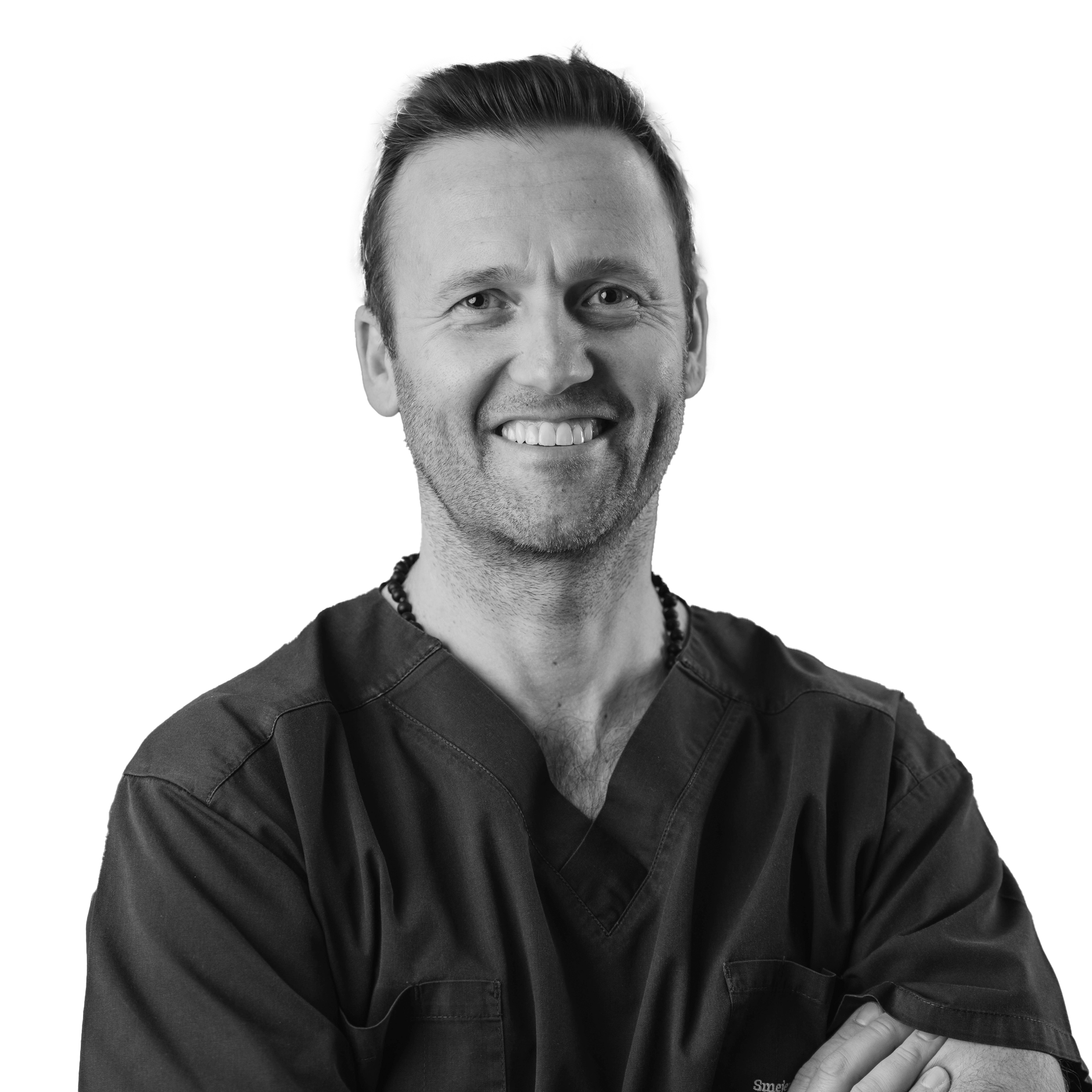
Meet Your Host,
Dr. Sebastjan Perko, PhD.
Greetings from the Maha Clinic team! I am Dr. Sebastjan Perko, your host for the Maha Symposium on Integrative Medicine & Dentistry at the enchanting Ljubljana Castle on October 18th and 19th. With a passion for advancing healthcare, my vision is to foster a global exchange of knowledge among professionals, working towards healing the world. Join us for enlightening discussions, collaborative initiatives, and the integration of diverse medical approaches. Together, let’s shape the future of integrative medicine amid the rich history of our beautiful city of Ljubljana, complemented by nourishing food, a jazz concert, cutting-edge technology, and engaging lectures from international experts. My team and I look forward to connecting with you.
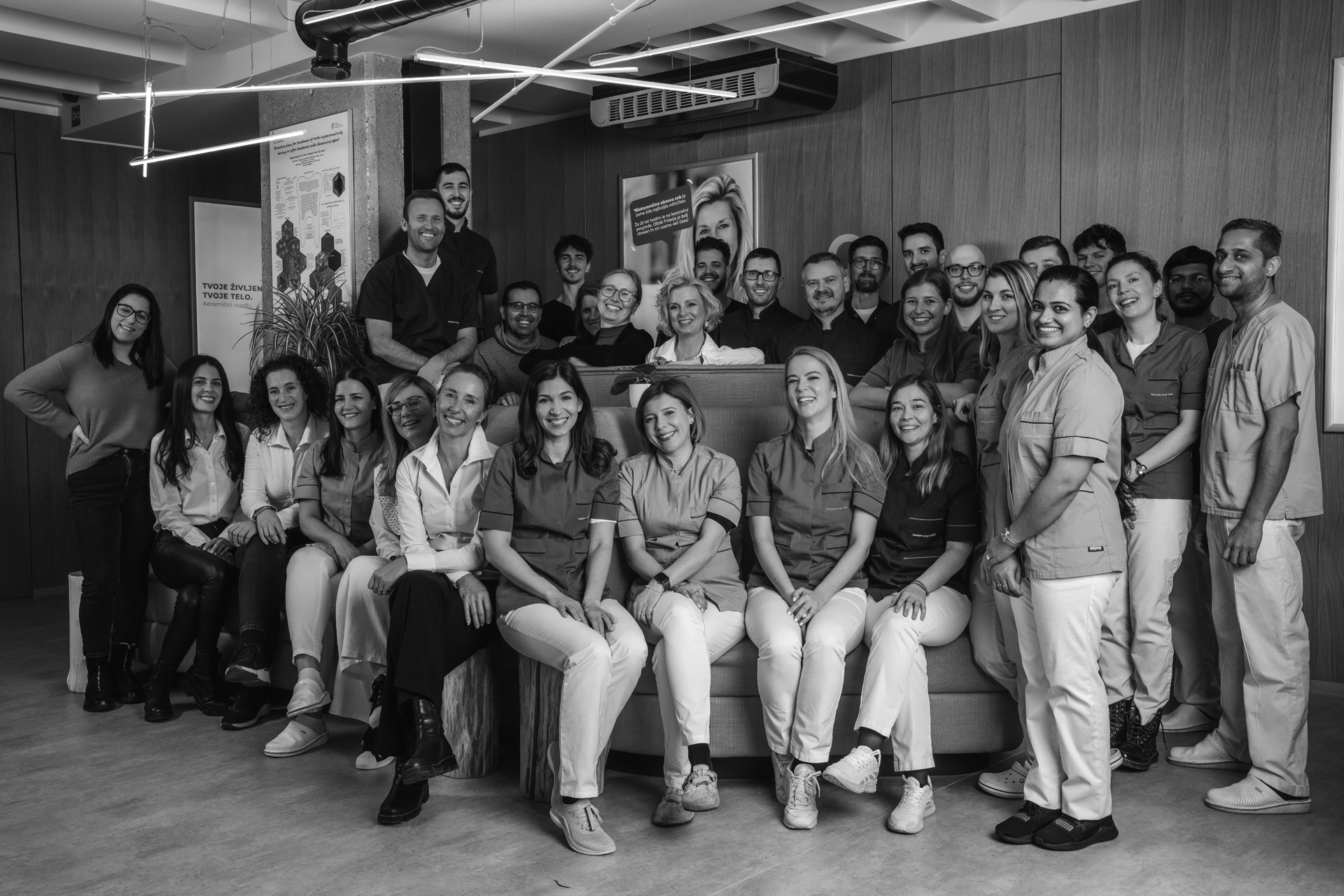

Pre-Symposium Get-Together at the Maha Clinic
17 th of October 2024 at 18:00
Join us for a pre-symposium gathering at our clinic the night before the event! To attend, kindly register by filling in your name and email address in the window below. Our team will be delighted to show you around the clinic and provide an insightful tour. We look forward to sharing a delightful evening with you.
Co–organized by Effective Health Society.
MAHA
Slovenska cesta 54, 1000 Ljubljana, Slovenija, Europe
Tel. +386 51 248 888
email: info@maha.clinic
Mon, Tue, Wed: 8:00 – 15:00
Thu: 12:30 – 20:00
Fri: 8:00 – 13:30
© Copyright 2024 – Maha / made by visualbraingravity
Thank you!You've signed up for the newsletter!
MAHA
Slovenska cesta 54, 1000 Ljubljana, Slovenija, Europe
Tel. +386 51 248 888
email: info@maha.clinic
Mon, Tue, Wed: 8:00 – 15:00
Thu: 12:30 – 20:00
Fri: 8:00 – 13:30
© Copyright 2024 – Maha / made by visualbraingravity
Therapies
Six stages of disease development
The Development of general Integrative Medicine has its roots far back in history.
It is a fact that modern Western or pharmaceutical medicine has emerged from the roots of ancient medical systems. Not to delve too deeply into history, we would say that Dr. Reckeweg is the one who, in the 1940s, combined Eastern and Western medicine and created a beautiful map of disease development. So it’s not just about the symptoms; it’s about the development of a condition in the human body that, if not treated, will lead to a certain disease. There are six stages of disease development, the last one being the different types of cancer. So before we continue with the explanation of the six stages, we would like to emphasize that, for your better understanding, always think of the health span, the disease span, and where you might be.
It will be crucial for our team to determine the exact position on the lifespan line and plan your therapeutic course accordingly. We are aware that this may sound simple or even too esoteric, but rest assured that the concept is scientifically sound and even correlates very well with modern thinking.
1. Anamnesis (Calling to mind)
Since determining the coordinates on the lifespan line is usually difficult and there are many diagnostic procedures, a thorough medical history is crucial to determining the diagnostic algorithm that will allow us to determine the causes of your disease. This will enable us to provide you with an effective treatment plan.
Take your time and address the beginnings of your symptoms; it can make a difference. Most of our patients say the same sentence: “I felt something in this area 5 to 10 years ago. I had an ultrasound done with a radiological scan, and everything was fine.” In Maha Integrative Medicine and Dentistry, this clearly states that our inner milieu has already experienced the fullness of the “toxic” barrel with blockages or at least an inadequacy of the drainage pathways, i.e., the liver and kidneys, but the damage had not reached the cells at that time. The diagnostics of modern Western medicine are very important once the damage has reached a cellular level. Logically, further steps are then required, and this brings us to diagnostics.
2.Diagnostics - cause or causes?
To deepen your understanding of integrative medicine, we have said that diseases usually begin in the “water” of the body. If the cause cannot be identified and removed, it affects the extracellular matrix, also known as Pichinger’s space, which is mainly collagen and hyaluronic acid; of course, there are many other molecules. Usually, at this point, you feel something is wrong, but it is just too unspecific for conventional medicine to diagnose and treat. We would dare say that this is the charm of integrative diagnostics.
Integrative medicine has evolved to the point where its diagnostics can very accurately determine the cause(s) in the “water” part and thus in the extracellular matrix. At Maha, we first do a dark field blood analysis, an Ayurvedic diagnostic, and a VNS (Vegetative Neural System) analysis, which give us very good clues as to where your problem might lie. In addition, an integrative oral health examination with X-ray and ultrasound analysis is carried out. With all this, we determine the regulatory capacity of your body, assess the condition of the blood plasma (water), red blood cells, and white blood cells, and identify any oral, inflammatory, osteoimmunological, and material influences on your body. This gives us a pretty good idea of where your problems lie.
By combining the information with Ayurvedic insights and our nutritional knowledge, you get suggestions for laboratory tests of blood, urine, and/or stool. We work with two very good integrative laboratories in Germany, one in Berlin and one in Limburg-Eschhofen. We are very grateful that they offer such analyses and support us in developing modern integrative medicine and dentistry. In the meantime, we are very sure of the causes of your situation or illness and can prescribe very individualized, effective therapies. Based on the measured laboratory data we have carried out over the years, we can clearly say that an average person today is undernourished, even though their body mass index is too high. How can this be?
In summary, integrative diagnostics complement the diagnostics of modern Western medicine in such a way that, in combination, they cover the entire lifespan, and this is the real reason for the success of integrative medicine in treatment.
3.Therapeutic strategies
Our love for integrative medicine began simply because it covers every aspect of human life and uses all the medical knowledge available today. Of course, it focuses first on relieving symptoms, but even more important is finding the causes of your illness. Once these are defined, a refined treatment plan is proposed after anamnesis and diagnosis, aimed at increasing the capacity of the body’s detoxification mechanisms (supporting the liver and kidneys), reducing the intake of toxins, and strategically addressing the specifics of your diagnosed causes. The main goal is always to build up the body’s regenerative capacity and to add supportive treatments in accordance with the course of therapy. We cannot go into each treatment method individually; we will do that in the future when we write a book. However, it is within the scope of this text to describe strategies for various diseases that will give you a clear understanding of how Maha Integrative Medicine and Dentistry works. The stages of disease development are as follows:
STAGES
DESCRIPTION
THERAPIES
TAKING CARE OF REGULAR DAILY EXCRETION
This stage is actually the natural stage of our body. The body’s natural detoxification pathways function normally. Toxins, bacteria, viruses, metals, etc. enter the body and are also excreted. You may get a cough, runny nose, diarrhea, more frequent urination, excessive sweating, etc., which just means that the defenses have been activated and it is wise to let them work and not suppress them with medication. Suppression overrides the detoxification pathways. Of course, integrative diagnostics are advisable to support excretion.
Therapies include mainly herbal treatments, hyperthermia, altitude training in the comfort of our clinic, infusions, medical training with yoga and its techniques, and dental wellness. Again, they are prescribed individually, and the program is arranged based on your time availability. For example, 7 days a week, twice a week for a month, or any other option.
YOUR CRUCIAL ROLE:
- Nutrition and hydration
- Learn the lay concept of Integrative Medicine
- Take remedies as prescribed
- Communicate with Maha’s staff via email, phone, online, or face-to-face meetings about any concerns and/or improvements, etc.
- Follow the prescribed medical training (yoga with its techniques, osteopathic training,…)
THE REACTION STAGE OCCURS WHEN OUR BODY SIMPLY CAN’T EXCRETE EFFICIENTLY. THE IMMUNE SYSTEM TRIES TO ELIMINATE THE CAUSE OF INFLAMMATION. THE MAIN GOAL IS TO SUPPORT THE BODY’S DEFENCES AND TO COMBAT THE DIAGNOSED ”NOXIOUS AGENT” WITH SPECIFIC THERAPIES.
Common diagnoses that fall into this stage are dermatitis, erythema, eczema, stomatitis, rhinitis, herpes zoster, poliomyelitis, neuralgia, pharyngitis, laryngitis, colitis, hepatitis, abscess, osteomyelitis, tonsillitis, and polyarthritis, to name a few.
1. YOUR CRUCIAL ROLE:
- Follow the guidelines as described above.
2. ACTIVATION OF DRAINAGE (ESPECIALLY GUT, LIVER AND KIDNEYS)
- Specific drainage remedies
- Herbal packs on the liver with prescribed Ayurvedic drainage treatments
- Local hyperthermia – Indiba on liver and kidneys
- Systemic hyperthermia – Iratherm 1000
- Ion-Induction-Therapy – papimi
- Rectal ozone
- i.v. detoxification therapies – as prescribed
3. RESTORATIVE TREATMENTS
- Specific restorative remedies
- Ayurvedic antioxidant treatments
- i.v. restorative therapies
4. TARGET THE SPECIFIC CAUSATIVE ”NOXIOUS AGENT” DISCOVERED DURING ANAMNESIS AND DIAGNOSTICS.
- Chemical agents (glyphosate, PFOA, pesticides. DDT, herbicides)
- Bacteria (streptococcus, staphylococcus, borrelia,..) – most relevant
- Viruses (EBV, VZV, CMV, influenza, Covid-19…) – most relevant
- Heavy metals (arsenic, cadmium, lead, mercury…)
DEPOSITION CONTINUES IN THE PICHINGER’S SPACE, ADIPOSE TISSUE, AND VASCULAR SYSTEM. THE CAPACITY OF THE MECHANISMS OF STAGE 1 AND STAGE 2 MUST BE THERAPEUTICALLY INCREASED, AS THEY ARE THE BODY’S OWN ”CLEANSING” PATHWAYS”.
Common stage 3 diagnoses are atheromas, warts, cysts, polyps, neuromas, constipation, cholelithiasis, obesity, gout, edema, lymph gland swelling, prostatic hypertrophy, fibroids, and rheumatism, to name a few.
1. YOUR CRUCIAL ROLE:
- Follow the guidelines as described above.
2. ACTIVATION OF DRAINAGE (ESPECIALLY GUT, LIVER AND KIDNEYS)
- As described in stage 2.
3.RESTORATIVE TREATMENTS
- As described in stage 2.
4. TARGET THE SPECIFIC CAUSATIVE ”AGENT” THAT WAS DISCOVERED DURING ANAMNESIS AND DIAGNOSTICS.
- Heavy metals
- Chemicals (glyphosate, etc)
- Bacteria – CWD – chronic
- Viruses – chronic
5. SPECIFIC CONNECTIVE TISSUE DRAINAGE AND ACTIVATION OF DETOXIFICATION ON A CELLULAR LEVEL
- Specific drainage remedies
- Specific ayurvedic treatments
- Osteopathic drainage treatments
- Specific papimi Ion-Induction-Therapy regimen
- Specific local – Indiba and systemic hyperthermia – Iratherm 1000
- IHHT – Intermittent hyper, hypoxic treatment
- Integrative Dentistry
THE CAUSATIVE “NOXIUS AGENTS” HAVE PENETRATED THE CELLS. THEY DISRUPT THE ENZYMATIC FUNCTIONS OF THE CELL AND DAMAGE THE CELL MEMBRANE. THE TREATMENT STRATEGY IS BECOMING MORE AND MORE STRINGENT.
Diagnoses that fall into this stage are migraine, eye twitching, viral infections, asthma, ulcers, toxic liver damage, common cold, angina pectoris, myocarditis, and many others.
The so-called Milleu therapy strategy follows the protocol of the first 3 stages. Since the cell structures are already damaged at this stage, we have to use these:
- Specific remedies that increase cellular energy
- Targeted cellular restoration and detoxification therapies
- Strict Integrative Dentistry
ORGAN STRUCTURE AND FUNCTION ARE IRREVERSIBLY DAMAGED. NOXIOUS AGENTS INVADE GLANDS, ESPECIALLY THE THALAMUS, LEADING TO HORMONAL IMBALANCE AND A REDUCED CAPACITY FOR IMMUNE MODULATION. CELLS ARE SEVERELY DAMAGED, RESTORATION OF CELL MEMBRANES, ENZYMES, OTHER PROTEINS, AND GENETIC MATERIAL IS CRUCIAL TO PREVENT THE TRANSITION TO THE NEXT, HIGHLY UNDESIRABLE FINAL STAGE.
The most typical diagnoses in stage 5 are muscular dystrophy, ALS, multiple sclerosis, hyperthyroidism, hypothyroidism or Hashimoto’s disease, myocardial infarction, cirrhosis of the liver, nephrosis, renal atrophy, impotence, dermatoses, chronic atrophic rhinitis, paresis, neurofibromatosis, scleroderma, cachexia, spondylitis, pernicious anemia, etc.
The basic therapies aim to induce phase 1 and the controlled outflow pathways of phase 2 as in all previous stages, followed by the others mentioned above.
What is special about the therapies of this stage are the protective and repair treatments for the non-genetic and genetic material of the cells, which are meticulously planned.
FURTHER ACCUMULATION OF “TOXINS” LEADS TO DAMAGE OF THE GENETIC MATERIAL OF THE CELLS AND THE CELLULAR RESPIRATORY MECHANISMS. OXIDATIVE-FREE RADICALS REINFORCE ORGANIC DYSFUNCTION AND TISSUE DEGENERATION, WHICH IS ACCOMPANIED BY IMMUNE SYSTEM DYSFUNCTIONS. THE RESULTS IS NEW GROWTH CALLED CANCER.
Diagnoses that fall into this group are all forms of cancer at any stage. Especially in stage 6, we work together with our valued partner clinic from Switzerland, BioMedicine Sonnenberg, which has a lot of experience in the field of integrative oncology, and together we have success.
When you reach this stage, things also change in the Integrative Medicine approach. Special attention is required at every step of the way. Basic therapies are still crucial, but care must be taken not to activate them too much in too short a time. Protective and repair treatments for the non-genetic and genetic material of the cells will continue and a special branch of Integrative Oncology will be added to the treatment plan.
It goes without saying that an extremely thorough diagnostic procedure is the basis for an extremely thorough therapy plan, including dentistry. The mouth is the most neglected part of Integrative Medicine. It is the source of carcinogenic bacteria, CCl5 – (formally known as Rantes – and metallic materials.
MAHA
Slovenska cesta 54, 1000 Ljubljana, Slovenija, Europe
Tel. +386 51 248 888
email: info@maha.clinic
Mon, Tue, Wed: 8:00 – 15:00
Thu: 12:30 – 20:00
Fri: 8:00 – 13:30
© Copyright 2024 – Maha / made by visualbraingravity
science
Maha Lectures
Biological dentistry: fundamentals and effective Methods: Preventive measures and therapeutic approaches to promote bone and soft tissue healing.
This abstract explores the pivotal role of the microbiome and osteoimmunology as key factors influencing overall systemic health in the context of dentistry.
Unveiling the Oral Systemic Axis: Exploring the Role of Microbiome and Osteoimmunology in Biological Dentistry
Biological Dentistry emerges as a burgeoning field acknowledging the intricate interplay between oral well being and systemic health.
Biological Dentistry is an emerging field that recognizes the interplay between oral health and systemic health.
This abstract explores the pivotal role of the microbiome and osteoimmunology as key factors influencing overall systemic health in the context of dentistry.
Links
Articles
Blood Tests to Determine the Impact of the Mouth on the Body
Integrative medicine does not exist without biological dentistry. The mouth with teeth is part of the body that, with its inflammatory conditions and metallic materials, affects health.
Biocompatible Implants – Zirconium Oxide
Loss of a tooth, resulting from disease or mechanical damage, not only affects an individual's aesthetic appearance but also significantly impacts the functionality of the bite. When we decide to get a dental implant, we probably envision a carefree life in the future.
Dead Teeth – Granulomas
Dead teeth are a result of granulomas and can be extremely harmful if not properly treated. Similar to periodontal disease, we are dealing with highly aggressive bacteria here, which lead to the decay of tissues inside the tooth, specifically the dental pulp or nerve.
Amalgam and Other Alloys in the Mouth
Despite periodontal disease affecting as many as 80% of Slovenian men and women, we still underestimate the extent of this pathological condition.
MAHA
Slovenska cesta 54, 1000 Ljubljana, Slovenija, Europe
Tel. +386 51 248 888
email: info@maha.clinic
Mon, Tue, Wed: 8:00 – 15:00
Thu: 12:30 – 20:00
Fri: 8:00 – 13:30
© Copyright 2024 – Maha / made by visualbraingravity
bistro
HEALTHY & PLANT BASED
Our holistic and integrative viewpoints dictate that the food that we consume plays an important role in our overall well-being, and that is the sole reason why we actually funded Bistro Maha, located just a short walk away from the clinic.
Bistro Maha is on a mission, not only to offer a healthy, organic, plant-based alternative to the public but specifically to develop and introduce personalized diet plans designed to empower you on your journey to optimal health while visiting our clinic.
To offer clear support for your systemic healthcare plan, we most of the time advocate dairy-free, sugar-free, plant-based, and alkaline foods, with a tendency to avoid gluten whenever possible. These nutritional principles have been shown to promote better health and well-being, reduce inflammation, and support the body’s natural healing processes.
We shape these plans according to your lifestyle, nutritional aspects, and the medical anesthesia provided by our therapists. We do offer short- and long-term diet plans, supported by lectures and cooking demonstrations when needed.
Our food program is led by an internationally acclaimed chef, who specializes for healthy plant-based foods. The support cast is formed by a dietitian and a team of 4 chefs, with different specializations.



MAHA
Slovenska cesta 54, 1000 Ljubljana, Slovenija, Europe
Tel. +386 51 248 888
email: info@maha.clinic
Mon, Tue, Wed: 8:00 – 15:00
Thu: 12:30 – 20:00
Fri: 8:00 – 13:30
© Copyright 2024 – Maha / made by visualbraingravity
Diseases
Just a few of the
conditions we treat
At our clinic, we specialize in providing comprehensive treatment for a variety of conditions. Our typical patient has tried many things, but the symptoms will not go away. Our team of experienced healthcare professionals is dedicated to the diagnosis, treatment, and management of all health problems.
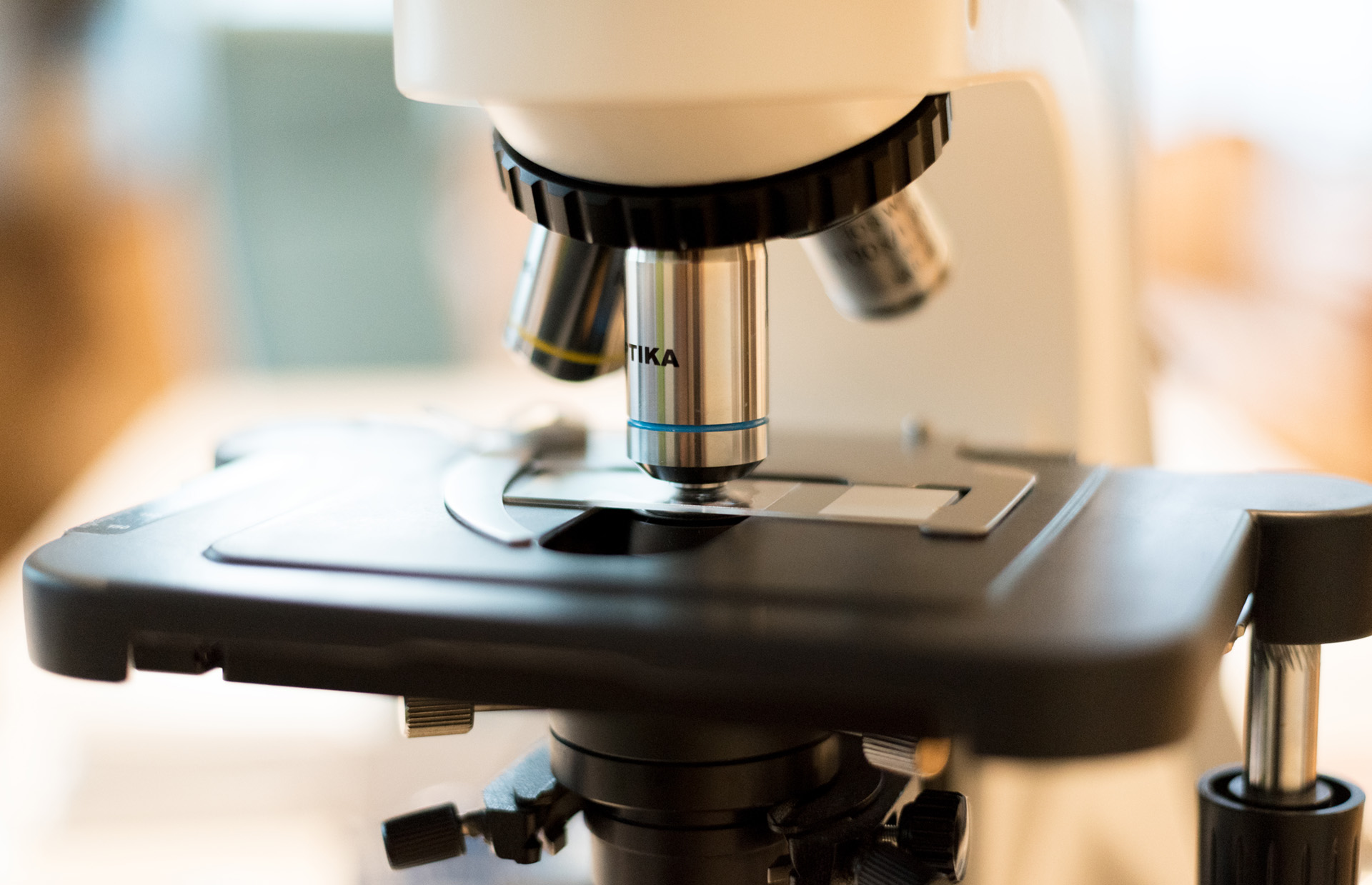
Common civilization diseases
Cardiovascular diseases
Cardiovascular diseases are the most common cause of illness and mortality among adults in developed countries, including Slovenia. This includes stage 3 to stage 4 conditions such as high blood pressure, angina pectoris, etc. The most significant causes of death and long-term disability are heart attacks and strokes, which are typical stage 5 diseases that are sudden complications of coronary heart disease and cerebrovascular disease.
Cardiovascular diseases (CVD), also known as heart diseases, encompass a wide range of conditions that affect the heart and blood vessels. These conditions are a leading cause of morbidity and mortality worldwide. The most prevalent type of CVD is stage 3 coronary artery disease (CAD), which results from the buildup of atherosclerotic plaques in the coronary arteries, limiting blood flow to the heart. CAD can lead to stage 4 angina (chest pain) or, in severe cases, stage 5, heart attacks (myocardial infarctions).
Other common cardiovascular diseases include heart failure, hypertension (high blood pressure), arrhythmias (irregular heart rhythms), valvular heart diseases, cardiomyopathies (heart muscle disorders), and peripheral artery disease (PAD). Each of these conditions has its causes, risk factors, and potential complications.
CVD risk factors include smoking, high blood pressure, elevated cholesterol levels, obesity, diabetes, physical inactivity, an unhealthy diet, a family history of heart disease, poor oral health, and advancing age. Prevention and management strategies include lifestyle modifications, like regular exercise and a heart-healthy diet, medication management, and, in some cases, surgical interventions such as angioplasty or bypass surgery.
Early detection and timely treatment are essential in reducing the burden of CVD. Regular check-ups, diagnostic tests, and risk factor assessments enable healthcare providers to identify and address potential issues. By promoting heart-healthy lifestyles and improving access to cardiovascular care, it’s possible to mitigate the impact of these diseases and enhance the overall cardiovascular health of populations.
At Maha Clinic, our approach, which integrates medicine and dentistry, specifically targets the complexities of cardiovascular disease. By implementing biocompatible non-metallic materials, a strict attitude to infectious and non-infectious inflammations, we address the intricate relationship between oral health and cardiovascular well-being. Our evidence-based therapeutic protocols, complemented by personalized lifestyle modifications, aim to effectively manage risk factors associated with cardiovascular disease, promoting improved heart health and overall wellness for our patients.
- Periodontal Disease and Inflammation:
- A study published in the journal “Circulation” in 2012 found that individuals with periodontal disease have a higher risk of developing heart disease, possibly due to the chronic inflammation associated with gum disease.
- Oral Bacteria and Atherosclerosis:
- Research conducted at Columbia University suggested that certain species of oral bacteria are associated with the development of arterial plaque, which is a hallmark of atherosclerosis. The study was published in the journal “Nature” in 2018.
- Endothelial Dysfunction:
- A study published in “Arteriosclerosis, Thrombosis, and Vascular Biology” in 2013 demonstrated that oral bacteria may contribute to endothelial dysfunction, a key factor in the development of cardiovascular diseases.
- Shared Risk Factors:
- Numerous studies have shown the relationship between shared risk factors for oral and cardiovascular health. For example, a study published in “Preventive Medicine” in 2018 found that a healthy diet low in sugar and processed foods is associated with a lower risk of both gum disease and heart disease.
- Oral Health Interventions:
- A systematic review published in “The Journal of the American Dental Association” in 2017 explored the impact of oral health interventions, such as professional dental cleanings and improved oral hygiene, on reducing the risk of cardiovascular diseases.
- Genetic Factors:
- Some research has investigated the role of genetic factors in the relationship between oral health and cardiovascular health. A study published in “Frontiers in Physiology” in 2017 examined the genetics of periodontal disease and its potential impact on cardiovascular risk.
These are just a few examples of scientific studies and findings that have contributed to our understanding of the connection between oral health and cardiovascular diseases. While the precise mechanisms and causality are still subjects of ongoing research, these studies provide concrete evidence of the relationship between the two and have informed clinical practice and guidelines for healthcare providers in both the dental and medical fields.
Stress and Burnout
Chronic problems and stress in any area of life can lead to burnout, which is defined as a state of life exhaustion characterized by reduced personal effectiveness. Burnout differs from work-related exhaustion, as the latter is a normal consequence of excessive work that can be resolved through rest, whereas rest is not sufficient for burnout. Signs and symptoms manifest on emotional, physical, behavioral, and motivational levels, as well as in thinking patterns. Adrenal exhaustion, often referred to as “adrenal fatigue,” is a term used within the realm of biological medicine to describe a condition where the adrenal glands, responsible for producing stress hormones like cortisol, become dysfunctional due to chronic stress or overstimulation. Integrative medicine seeks to understand this condition as a complex interplay of hormonal, nutritional, and lifestyle factors. Practitioners in this field may use specialized testing to identify imbalances in hormone levels, nutrient deficiencies, and other biological markers. Treatment strategies often include dietary adjustments, supplementation of specific nutrients, and detoxification protocols. Integrative medicine emphasizes the importance of personalized care, recognizing that each individual’s physiology is unique. The goal is to support the body’s inherent ability to heal and restore balance.
Diabetes
Integrative medicine emphasizes the body’s inherent ability to heal itself and aims to improve overall wellness and metabolic function in people with diabetes. These plans may include dietary changes, nutritional supplements, detoxification, and natural therapies. Not only are the physical aspects considered, but also the emotional and lifestyle factors that contribute to diabetes. Patients receive personalized treatment plans that include dietary changes, exercise, stress management, and awareness techniques in addition to conventional medications or insulin therapies. Integrative medicine aims to improve overall wellness, better control blood sugar levels, and reduce the risk of diabetes-related complications. Working with healthcare professionals, people with diabetes can develop comprehensive, evidence-based strategies tailored to their specific needs. This holistic approach recognizes that diabetes management goes beyond medical interventions and looks at the person as a whole. In this regard, type 2 diabetes can be cured, while insulin use is greatly reduced in type 1 diabetes.
Understanding the scientific connection between oral health and diabetes management is crucial. At Maha Clinic, we prioritize an integrated approach, recognizing the impact of periodontal disease on diabetes. Scientifically, research has established the relationship between oral inflammation and difficulties in regulating blood sugar levels. By addressing periodontal health alongside diabetes care, we aim to minimize inflammation and improve glycemic control. Our commitment involves comprehensive periodontal assessments, tailored oral hygiene plans, and preventive strategies to mitigate potential complications.
Oral Health
The connection between oral health and systemic diseases is an active area of scientific research, and numerous studies have explored the links between the two. Here are some of the key systemic diseases and conditions that have been associated with poor oral health, supported by scientific evidence:
- Cardiovascular Disease: Research has shown that periodontal (gum) disease is linked to an increased risk of cardiovascular diseases such as coronary artery disease and stroke. Chronic gum inflammation can lead to systemic inflammation, which may contribute to the development and progression of cardiovascular conditions.
- Diabetes: There is a bidirectional relationship between diabetes and oral health. People with diabetes are more susceptible to gum disease, and the presence of gum disease can make it more challenging to control blood sugar levels in individuals with diabetes.
- Respiratory Infections: Poor oral health, particularly gum disease, has been associated with an increased risk of respiratory infections, including pneumonia. Aspiration of oral bacteria into the lungs can contribute to these infections.
- Rheumatoid Arthritis: Some studies suggest a connection between gum disease and the development or exacerbation of rheumatoid arthritis. Chronic inflammation in the mouth may trigger or worsen inflammatory conditions in the joints.
- Pregnancy Complications: Periodontal disease has been linked to an increased risk of preterm birth and low birth weight. Hormonal changes during pregnancy can make the gums more susceptible to inflammation and infection.
- Alzheimer’s Disease: Emerging research suggests a potential link between poor oral health, gum disease, and an increased risk of cognitive decline and Alzheimer’s disease. Chronic inflammation may play a role in this association.
- Kidney Disease: Kidney disease patients often have compromised immune systems, making them more vulnerable to oral infections. Poor oral health can exacerbate systemic health issues in individuals with kidney disease.
- Cancer: Research has suggested associations between certain types of cancer, such as pancreatic, colon, and oral cancers, and periodontal disease.
The importance of maintaining good oral hygiene and seeking regular dental care is a crucial aspect of overall health and well-being. Additionally, individuals with systemic diseases should be aware of the important impact of oral health on the body, have in-depth diagnostics, and include dental treatments in integrative therapy plans.
Obesity
Obesity is the most common chronic metabolic disease in the developed world and the second most important preventable cause of increased morbidity and mortality after smoking. It is important to determine the individual’s metabolism in such cases. Often, there is a lack of metabolic and restorative energy, resulting in the deposition of proteins in the interstitial space, which can be converted into carbohydrates or indirectly into fats.
Leaky Gut Syndrome
Leaky gut, scientifically referred to as “increased intestinal permeability,” is a concept that has gained attention in the fields of gastroenterology and immunology. Here are some key points related to the science of leaky gut:
- Intestinal Barrier: The gastrointestinal tract has a protective lining consisting of a single layer of epithelial cells, which form a barrier between the contents of the gut and the bloodstream. This barrier is crucial for the absorption of nutrients while preventing harmful substances, such as bacteria and toxins, from entering the bloodstream.
- Tight Junctions: Tight junctions are protein complexes that connect adjacent epithelial cells, maintaining the integrity of the gut barrier. When these tight junctions become compromised, it can lead to increased permeability, allowing substances to pass through more easily.
- Potential Causes: Several factors may contribute to increased intestinal permeability, including chronic inflammation, certain medications, gut infections, stress, and dietary factors. Research is ongoing to understand the specific mechanisms involved.
- Role in Disease: Some studies suggest that increased intestinal permeability plays a role in the development of certain gastrointestinal conditions, such as inflammatory bowel disease (IBD), celiac disease, and irritable bowel syndrome (IBS). It has also been proposed as a factor in systemic conditions like autoimmune diseases, allergies, and even neurological disorders.
The scientific understanding of increased intestinal permeability continues to evolve, and ongoing research seeks to clarify its role in various diseases and establish effective diagnostic and treatment approaches. If you suspect you have gastrointestinal concerns or are experiencing symptoms related to gut health, it’s advisable to consult a healthcare professional for proper evaluation and guidance.
Arthritis, Gout, and other Musculoskeletal Disorders
Arthritis, a debilitating condition characterized by joint inflammation and pain, is a significant healthcare concern affecting millions worldwide. It is a condition marked by joint inflammation that can be approached through the lens of integrative medicine, which combines conventional and other therapies. In this context, treatments may include a combination of carefully dosed pharmaceutical interventions for symptom management along with integrative therapies. Integrative medicine aims to not only alleviate pain and inflammation but also to address the root causes of the condition, considering the patient’s lifestyle, environmental factors, and emotional well-being. By employing a holistic approach, integrative medicine seeks to enhance the overall quality of life for individuals suffering from arthritis.
Integrative medicine delves into the molecular and cellular underpinnings of arthritis, unraveling its genetic, immunological, and inflammatory aspects. Understanding the role of cytokines, autoantibodies, and genetic factors is fundamental to developing precision therapies. In a holistic view of arthritis, recognizing its multi-faceted nature is very important. It incorporates lifestyle modifications, nutritional strategies, and mind-body techniques to enhance patients’ overall well-being. Integrative care acknowledges the significance of stress reduction, dietary choices, and physical activity in managing arthritis symptoms. Moreover, it underscores the interplay between emotional health and physical symptoms, emphasizing the importance of psychological support and pain management.
A patient-centered approach, considering both the molecular intricacies of the disease and the broader context of patients’ lives, allows for a more comprehensive and personalized treatment strategy. By addressing the biological triggers of arthritis and supporting individuals in making lifestyle changes, this combined approach endeavors to improve the quality of life for those affected by this chronic condition.
Nervous System
Integrative medicine offers a comprehensive and patient-centered approach to addressing nervous system diseases. While conventional medicine provides the primary framework for diagnosis and treatment, integrative medicine takes into account the broader well-being of individuals affected by neurological conditions.
Mind-body techniques, such as mindfulness meditation and yoga, help individuals cope with the emotional and psychological challenges often associated with nervous system diseases. Nutritional support, tailored Maha integrative medicine and dentistry therapy plans with tailored dietary plans, and medication aim to promote brain health and manage symptoms. Exercise and physical therapy can enhance mobility and coordination. Sleep management and relaxation techniques address common sleep disturbances.
Integrative care also emphasizes patient education, empowering individuals to understand their conditions and make informed decisions about their health. Collaborative care ensures that patients receive a comprehensive approach, combining conventional medical treatments with complementary therapies. Ultimately, the goal of integrative medicine is to enhance the quality of life for individuals with nervous system diseases by addressing all aspects of their well-being. This approach, supported by scientific research, reflects a growing understanding of the complex interplay between physical and emotional health in managing these conditions.
High cholesterol levels
Cholesterol plays a crucial role in a wide array of functions in the human body. It serves as a precursor for the synthesis of various hormones, including sex hormones (like estrogen and testosterone), adrenal hormones (such as cortisol), vitamin D, and Coenzyme Q10. These molecules are essential for regulating the immune system, metabolism, growth, and reproductive functions. High levels of cholesterol in the blood may indicate a blockage in one of the pathways for producing these important molecules. Cholesterol is indispensable for the production of these vital compounds.
Cholesterol and coenzyme Q10 (CoQ10) are related as they are both lipid molecules present in the body. Coenzyme Q10, also known as ubiquinone, plays a critical role in energy production in every cell, especially within the mitochondria, which are the cell’s energy powerhouses. For instance, a deficiency of CoQ10 in heart muscle can lead to arrhythmias and other heart issues.
Cholesterol itself is a type of lipid that forms a part of cell membranes and serves as a precursor for the synthesis of other crucial molecules, such as bile acids. Cholesterol is essential for maintaining the proper functioning of cell membranes.
CoQ10 is a vital component in the electron transport chain during cellular respiration, which is crucial for generating adenosine triphosphate (ATP), the primary source of cellular energy. While cholesterol is not directly involved in this energy production process, both cholesterol and CoQ10 are lipids with significant roles in preserving overall cellular health.
It’s important to note that drugs like statins, which are commonly prescribed to lower cholesterol levels, can reduce the availability of the source molecule for producing important compounds in our bodies.
If you have high cholesterol, even if you are not taking statins, consider scheduling a Zoom or regular session with one of our therapists to explore ways to optimize the natural metabolic pathways for cholesterol utilization, allowing your body and mind to thrive once again.
Cancer (Integrative Oncology)
Integrative oncology represents a multidisciplinary approach combining conventional cancer treatments with complementary therapies. This field aims to optimize health, quality of life, and clinical outcomes for cancer patients through a personalized, patient-centered treatment plan. The key aspects of integrative oncology include:
Mechanistic Underpinnings of Complementary Therapies: The incorporation of complementary therapies in integrative oncology is not merely based on tradition or anecdote but is increasingly supported by mechanistic insights. For instance, acupuncture has been shown to modulate neuroendocrine pathways, potentially alleviating chemotherapy-induced nausea. Herbal supplements, such as curcumin, have been investigated for their anti-inflammatory and anti-neoplastic properties, which may play a role in inhibiting tumor growth and enhancing the efficacy of chemotherapy agents.Personalized Medicine and Genomic Profiling: Integrative oncology is aligning with the precision medicine model, utilizing genomic profiling to tailor treatments. This involves understanding the unique genetic mutations of a patient’s tumor, which can help in selecting targeted therapies that work synergistically with both conventional and complementary treatments, maximizing efficacy while minimizing toxicity.Clinical Outcomes and Evidence-Based Approaches: A growing body of randomized controlled trials and meta-analyses provides evidence for the effectiveness and safety of certain complementary therapies in oncology. These studies often focus on patient-reported outcomes such as quality of life, symptom management, and psychological well-being, in addition to traditional clinical outcomes like survival rates and disease progression.Phytochemicals and Nutraceuticals in Cancer Therapy: The role of phytochemicals and nutraceuticals, which you may encounter in orthomolecular medicine, is gaining scientific interest in cancer treatment. These natural compounds, found in various herbs and foods, are being studied for their potential to induce apoptosis, inhibit angiogenesis, and enhance the immune response against cancer cells.Integrating Mind-Body Medicine: Techniques such as mindfulness, meditation, and yoga are being rigorously evaluated for their physiological benefits in cancer patients. These practices are associated with the modulation of stress responses, reduction in inflammation markers, and potential impacts on tumor biology via psychoneuroimmunological pathways.Interdisciplinary Research and Collaboration: Integrative oncology thrives on interdisciplinary research, bringing together oncologists, biologists, pharmacologists, and practitioners of complementary medicine. This collaboration is crucial for conducting high-quality research, understanding the complex interactions between different therapies, and developing comprehensive treatment protocols.
Diseases of the musculoskeletal system
Lumbago (chronic pain in the lower back):
Integrative medicine aims to address this condition by focusing on improving cellular health, including optimizing mitochondrial function and enhancing cell membrane potential. By implementing tailored nutritional interventions, targeted physical therapy, and stress-reducing techniques, the approach aims to alleviate inflammation and support tissue regeneration in the affected areas, promoting long-term relief and enhanced mobility.
Sciatica:
At Maha, we use integrative medicine to target the root cause of sciatica by emphasizing the restoration of optimal nerve function, enhancing cellular communication, and promoting nerve regeneration. Through a combination of tailored exercise regimens, targeted nutritional support, and stress management techniques, the approach aims to reduce nerve inflammation and improve the overall function of the musculoskeletal system, thereby alleviating the symptoms of sciatica.
Tennis Elbow:
Integrative medicine approaches tennis elbow by targeting the underlying inflammatory processes at the cellular level. By optimizing cellular repair mechanisms, modulating oxidative stress, and promoting tissue healing, this approach utilizes tailored physical therapy, dietary modifications, and specific supplementation to reduce inflammation and facilitate tissue regeneration in the affected area, promoting long-term recovery and improved function.
Golfer’s Elbow:
Our interventions for golfer’s elbow focus on optimizing the cellular environment through targeted anti-inflammatory strategies, enhancing mitochondrial function, and promoting tissue repair. By incorporating personalized exercise regimens, dietary adjustments, and specialized supplementation, the approach aims to reduce inflammation, promote tissue regeneration, and improve the overall functionality of the affected muscles and tendons.
Frozen Shoulder:
Frozen shoulder is best tackled by targeting the cellular inflammatory pathways and enhancing tissue repair mechanisms. Through a combination of tailored physical therapy, targeted nutritional support, and stress-reducing techniques, the approach aims to reduce inflammation, promote tissue regeneration, and restore optimal mobility in the affected shoulder joint, fostering long-term relief and improved functionality.
Rotator Cuff Injuries:
Integrative medicine for rotator cuff injuries focuses on optimizing cellular repair mechanisms, enhancing mitochondrial function, and reducing oxidative stress within the affected muscles. By implementing tailored physical therapy, targeted nutritional interventions, and specialized supplementation, the approach aims to promote tissue regeneration, reduce inflammation, and improve overall shoulder joint stability and functionality.
Carpal Tunnel Syndrome:
Integrative medicine interventions for carpal tunnel syndrome target the cellular and neural mechanisms underlying nerve compression and inflammation. By focusing on optimizing nerve conduction, reducing cellular inflammation, and promoting tissue regeneration, this approach incorporates tailored physical therapy, ergonomic modifications, and specific nutritional supplementation to alleviate symptoms, improve nerve function, and enhance overall wrist mobility and function.
Rheumatoid Arthritis:
At Maha Clinic, we aim to address the cellular and immunological dysregulation underlying rheumatoid arthritis by modulating the inflammatory pathways and optimizing immune function. Through a comprehensive approach involving personalized dietary modifications, targeted supplementation, and stress management techniques, the approach seeks to reduce systemic inflammation, improve mitochondrial health, and promote joint tissue repair, thereby alleviating symptoms and fostering better long-term management of the condition.
Osteoarthritis:
Integrative medicine for osteoarthritis focuses on optimizing cellular repair mechanisms, promoting cartilage regeneration, and reducing inflammation within the affected joints. By incorporating tailored exercise regimens, nutritional interventions, and targeted supplementation, the approach aims to support cartilage health, alleviate symptoms, and improve joint functionality, fostering long-term relief and enhanced mobility.
Tendinitis:
Much like with osteoarthritis, we aim to optimize the cellular repair processes, reduce inflammatory responses, and promote tissue regeneration within the affected tendons. By incorporating personalized physical therapy, targeted nutritional support, and stress management techniques, the approach aims to alleviate symptoms, support tendon health, and improve overall musculoskeletal function and mobility.
Postoperative Rehabilitation:
Integrative medicine in postoperative rehabilitation focuses on optimizing cellular repair mechanisms, promoting tissue regeneration, and reducing post-surgical inflammation. By incorporating specialized physical therapy, tailored nutritional support, and stress-reducing techniques, the approach aims to facilitate proper healing, improve tissue flexibility, and enhance overall recovery, fostering long-term postoperative well-being and functionality.
Pelvic Floor Muscle Dysfunction (Urinary Incontinence):
Implementing targeted exercises, including Kegel exercises, is crucial for strengthening these muscles, as they play a significant role in stabilizing the core. Integrative medicine employs specialized techniques to optimize cellular health, enhance muscle tone, and promote neural regeneration within the pelvic floor muscles. Through a combination of tailored exercise regimens, nutritional support, and stress management techniques, the approach aims to strengthen the pelvic floor muscles, improve muscle coordination, and alleviate symptoms of urinary incontinence, fostering long-term pelvic health and well-being.
MAHA
Slovenska cesta 54, 1000 Ljubljana, Slovenija, Europe
Tel. +386 51 248 888
email: info@maha.clinic
Mon, Tue, Wed: 8:00 – 15:00
Thu: 12:30 – 20:00
Fri: 8:00 – 13:30
© Copyright 2024 – Maha / made by visualbraingravity
about us
Maha Integrative Medicine is located at the heart of EU
Maha rolls out 500 m² of Integrative medicine and 500 m² of dentistry on two floors in a 14-story building in downtown Ljubljana at the heart of the EU.
Altogether we are 37 in staff in medical, dental, gastronomic, coordinating and supporting divisions. In the 2nd floor you will find reception and integrative dentistry and in the 3rd floor integrative medicine with a pharmacy shop and private gym. Just 5 min walk away a plant based bistro is waiting for you with its scientifically delicious alkaline food approved by dr. Perko himself. Your journey will most probably begin with Dr. Perko performing extensive biological medicine and dentistry diagnostics using dark field microscopy, HRV analysis, panoramic dental x-ray and probably dental CBCT. It takes 60 min, still most of the time it feels too short. According to findings you will be suggested necessary blood, urine and stool tests. You will continue with an Ayurvedic doctor who will among others perform pulse diagnostics.
Later on you will meet our nutrition specialist with whom you will go over all the details of your food regimen and recommendations that we know support our therapies. By now everyone knows that not every diet is for anyone. In the same day or maybe the next one you will get a complete overview of findings and therapy suggestions. Once you confirm the suggested plan our treatment coordinator will arrange your itinerary and your journey towards healthspan will begin.
500m²
integrative medicine
500m²
dentistry
37
medical staff
11.000+
patients treated
Our vision is that you yourself will be able to maintain and increase your inner strength and energy.
I will restore balance on the physical, energetic, mental, spiritual and relational levels of your life. We will teach you how to connect with your inner resources.
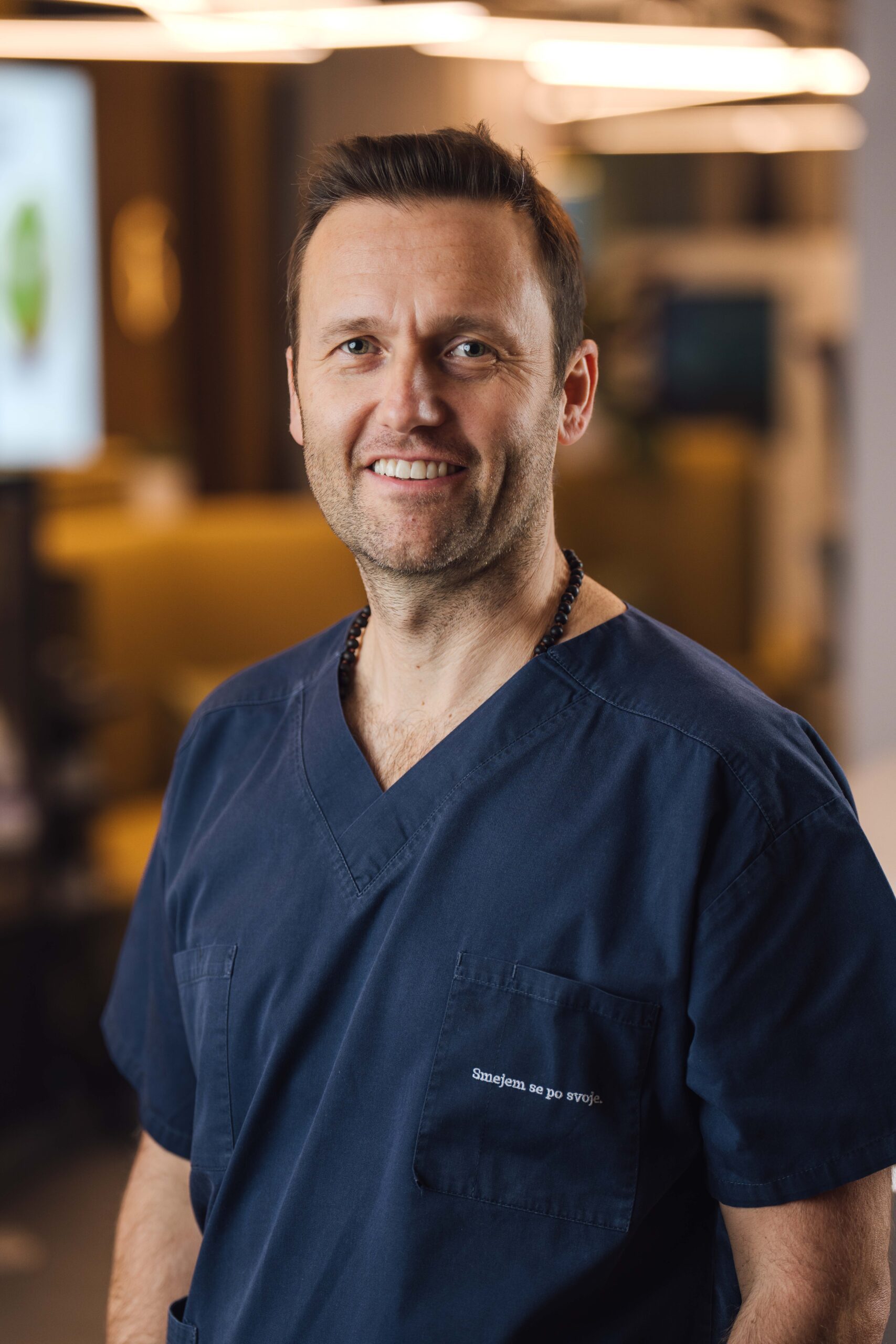
Sebastjan Perko, phD, DMD
Expert in Biological Dentistry, Oral Surgery and Biological Medicine
From an early age, I developed a strong affinity for nature and a deep respect for the well-being of living organisms. These values, including the importance of clean water, a healthy environment, and the sanctity of life, have been integral to my character, requiring no persuasion or elaborate reasoning. Even during my high school years, I was determined to pursue a career in caring for people and their physical health.
Over the years, my experiences have exposed me to diverse cultural and medical perspectives, while active participation in conferences has broadened my scientific insights beyond local boundaries. Valuing personal health and well-being greatly, I have actively contributed to the development of the holistic dentistry concept at the Maha Clinic since 2013. This endeavor aligns with my enduring childhood inclinations and complements the comprehensive approach of the Maha Center and the nutritional focus of Maha Bistro, all collectively dedicated to fostering a healthy future for individuals.
My academic journey started at the Faculty of Medicine in Ljubljana, complemented by in-depth research on dental materials during my doctoral work at the International Postgraduate School of the Jožef Stefan Institute. This research culminated in the development of a groundbreaking bioactive mixture, certified and introduced to the dental profession just before the global pandemic. Through these experiences and my exposure to traditional medical systems, I have adeptly combined traditional and modern approaches to optimize health outcomes.
I am grateful for the support of my mentors and colleagues, as well as the contributions of our international partners, notably in Switzerland, whose long-standing commitment to similar healthcare practices serves as a continual source of inspiration and collaboration.
Jana Pahole, dr. med., spec. int. onk.
Dr. Jana Pahole is a prominent figure in the field of oncology, particularly specializing in internal oncology. Her career trajectory is marked by significant contributions and achievements:
1. *Educational Background*: Dr. Pahole graduated from the Medical Faculty in Ljubljana in 2004, demonstrating early promise in her field (https://svetlika.si/jana/).
2. *Professional Experience*: She served for two decades at the Oncology Institute Ljubljana, initially in the Department of Acute Palliative Care and later as a physician in the Lymphoma Department. From January 2023, Dr. Pahole began practicing private integrative oncology (https://posvetuj.se/strokovnjaki/jana-pahole-dr-med-spec-internisticne-onkologije/). She was involved in the Metulj project and participated in numerous training programs related to palliative care and the treatment of various malignancies (https://svetlika.si/jana/).
3. *Certifications and Specializations*: In her pursuit of medical excellence, Dr. Pahole completed her specialization in internal oncology with commendation and passed the European Society for Medical Oncology (ESMO) examination in 2014 (https://svetlika.si/jana/#:~:text=,2022%0A%0Aterapevt%20medicinske%20hipnoze). She has also trained in non-violent communication, reflexotherapy, and in 2022, she earned the title of Therapist in Medical Hypnosis (https://med.over.net/moderator/jana-pahole-dr-med-spec-internisticne-onkologije/) (https://svetlika.si/jana/).
4. *Holistic Approach and Patient Communication*: Dr. Pahole emphasizes open communication with patients, believing it to be essential for trust and a collaborative relationship. Her approach extends beyond medical treatment, focusing on the patient’s values, relationships, beliefs, and existential questions (https://med.over.net/moderator/jana-pahole-dr-med-spec-internisticne-onkologije/).
5. *Personal Life and Interests*: Beyond her professional life, Dr. Pahole is a mother to three nearly grown children, finds peace in nature, inspiration in music, and enjoys learning languages and musical instruments (https://svetlika.si/jana/).
Dr. Pahole’s career reflects a deep commitment to oncology, patient care, and holistic treatment approaches. Her work in integrative oncology demonstrates her dedication to addressing not just the physical aspects of cancer but also its psychological, emotional, and social impacts.
Erik Božič
Project Manager and Business Organizer
As a former professional chef with a rich international career, I gradually transitioned away from the hospitality industry during the pandemic year of 2020 and found myself drawn to financial matters and business organization. I have an educational background in philosophy and economics, which complements my wide range of competencies and knowledge gained through various work and entrepreneurial experiences. I value humility, which is why I constantly engage in self-education and strive to broaden my horizons. The guiding principles of my career are sustainability and conscious decision-making, which I aim to apply to all aspects of my life.
My main hobbies include nature walks, sports activities, and exploring and analyzing financial markets. I joined Maha Clinic as a project manager and business organizer. I also oversee Bistro Maha, where I act as a kitchen mentor and consultant.
Bojan Vidniš, DMD
Expert in Biological Dentistry
“My interest in how the human body works dates back to my early childhood when I eagerly read all popular science magazines and encyclopedias that came my way. This path led me to a science-oriented high school in Maribor and then to the study of dental medicine at the Faculty of Medicine in Ljubljana.
I have always strived to seek the essence of everything, and during my studies, I systematically explored various worldviews through psychology and philosophy. This quest gradually led me through many periods of human thought, providing me with many answers but also numerous new questions. Finally, this search led me to yoga and Ayurveda, the magnificent Indian treasures of wisdom and knowledge about life.
Over 10 years ago, I encountered the authentic and traditional Indian yoga of the Bihar School of Yoga, which is among the most respected yoga schools in the world. Here, I met my teacher of yoga science and Ayurvedic doctor, Swami Vishwashakti Saraswati. Under her guidance and mentorship, I completed initial yoga courses, integral yoga, prana vidya, chakra shuddhi, and kriya yoga. I also attended a two-and-a-half-year education for Ayurvedic and marma therapists at the Tara Yoga Center.
While working in Oral Medicine, where I particularly focus on holistic dentistry and the connection between oral health and the whole body, the desire to merge knowledge from the field of traditional Indian medicine with modern medical discoveries gradually formed within me. With an invitation from colleague Sebastjan Perko, I happily began collaborating with the integrative Maha Clinic. Today, I continue to enhance my knowledge with the latest findings in contemporary nutrition, with a special emphasis on plant-based diets, through education in integrative medicine under the guidance of Dr. Thomas Rau from the Paracelsus Clinic in Switzerland, and through further development in dark-field microscopy, which represents a fundamental diagnostic tool of Biological Medicine.”
Marko Berkopec, DMD
Expert in Oral Surgery
“I spent my childhood in the pleasant environment of Vavta vas near the Krka River. Even as a child, I was interested in technology, model aviation, and music. I demonstrated my manual skills by playing classical guitar and later baritone. After completing high school in Novo mesto, I decided to study dental medicine at the Faculty of Medicine. I successfully completed my studies in 2007, and after completing my internship and professional examination, I was employed at the Health Center Ljubljana – Bežigrad, where I briefly held the position of the head of adult dentistry. I was also a regular member of professional commissions. Throughout, I strived for progress and development, regularly attending seminars, congresses, and professional workshops at home and abroad. However, within the public dental healthcare system, I couldn’t provide patients with everything that modern dentistry has to offer.
I gladly accepted the invitation from Dr. Perko and Dr. Bele to join the team in May 2016. In this pleasant environment, surrounded by like-minded people, I can finally realize my professional ambitions and offer patients comprehensive care at the highest level.
Jelena Božić, DMD
Biological Dentist
I come from the small city of Banja Luka, located in the northwest of Bosnia and Herzegovina. I have been living in Ljubljana for several years now, as I immediately fell in love with it. I admire its beauty, the green river, chestnut trees, and the morning mist that often reminds me of my hometown.
The world of dentistry caught my interest when I was just 15 years old, and I enrolled in a dental technician program at a healthcare high school. I further advanced my knowledge at the Medical Faculty in Banja Luka and became a Doctor of Dentistry after completing my studies.
Every day at the Maha Clinic brings new challenges where I continually gain new knowledge and experiences, which further motivates me. I never go to work with a heavy heart; it feels as if I am going to my so-called second home. My colleagues and guests at Oral Medicine are almost like my second family.
Simon Bele, DMD
Expert in General Biological Dentistry
From a young age, I showed signs of becoming a dentist. As a child, to the delight of my grandfather, I drilled quite a few holes in the facade of my grandparents’ house in Straža near Novo mesto. That was my first encounter with drilling. Of course, I didn’t patch up those holes; I learned how to do that much later. Since my father is a construction worker, and I have always been interested in buildings of all kinds, I initially considered becoming an architect in primary school. However, during my high school years, an extraordinary motorcyclist named Džuro came into my life, who had a drilling license. Thanks to him, I began contemplating a career as a dentist.
Thus, I became a first-year student at the Faculty of Medicine in Ljubljana, studying dental medicine. Seven years later, as a young dentist, I was employed at the Health Center Novo mesto, where despite my knowledge and great desire, I didn’t enjoy it much since I often had to say “no” to patients. Therefore, I soon opened my private practice. Several years later, during further education, I met Sebastjan Perko, my college mate. This chance encounter brought about the idea of expanding the concept of the Maha Clinic to Dolenjska, and there was no doubt about my future professional path, as the Maha Clinic is a team of exceptional individuals, experts who enjoy their profession, or rather, their mission. Here, we practice true and genuine dentistry that I have been seeking for eight years.”
Špela Vidmar, DMD
Biological Dentist
I am glad to be a part of Maha Clinic. I am ambitious and enjoy helping others. It brings me happiness to see a smile on your face. As the oldest child in my family, I have always taken care of others, helped them, and created. This led me to pursue dentistry from the age of 14.
I completed my education at the Dental Technical School in Ljubljana and then enrolled in the study of dental medicine in Sarajevo. Moving to another country brought me new experiences, acquaintances, independence, and a different perspective on the world and cultures.
After completing my studies, I returned to Ljubljana, my hometown, and started working at Maha Clinic. I am impressed by their holistic approach to healthcare and guests. I look forward to coming to work every day because I am greeted by a pleasant team and new challenges that motivate me to further develop, learn, and improve.
Alenka Andjelić Dolžan, mag. farm. homeopat
Homeopath
Having spent my childhood in the rural area of Gorenjska, living in harmony with nature, locally grown food, fresh air, and natural springs were natural to me. We alleviated health problems with medicinal herbs, and in times of stress, I sought solace in wandering through forests, where I found peace, calmness, and focus. Traditional use of medicinal herbs led me to study pharmacy at the Faculty of Pharmacy and Pharmaceutical Sciences in Ljubljana, and for 25 years, I have been a hospital pharmacist. However, I soon felt the need to offer more than just symptom relief with medications. I wanted to acquire more knowledge about well-being. Homeopathy was love at first sight. In 2004, under the guidance of Dr. E. Dervišević, I completed a four-year training program at the French Federation of Homeopathy Societies (FFSH). I supplemented my training with classical IACH training with Prof. G. Vithoulkas and further enhanced my skills with the Sensation Method by Dr. R. Sankaran and Case Witnessing Process by Dr. D. Chauhan during my work at a clinic in India, with whom I have been collaborating for several years. I organize homeopathic symposia to promote the spread of homeopathic knowledge among pharmacists. The introduction of homeopathic medicines in Slovenian pharmacies in 2011 stimulated the revival of this 200-year-old method of treatment, which we integrate for acute, chronic, and psychosomatic problems. Our approach is individualized, aiming to find balance on all levels: physical, emotional, and mental. Homeopathic medicines are prepared through dilution and potentization of substances from the plant, animal, and mineral kingdoms, making them safe and sustainable. I combine homeopathic treatment with Bach flower essences and facial analysis based on the principles of Schuessler’s tissue salts. In addition to the satisfaction of patients who have rediscovered their essence, my greatest joys are traveling the world, engaging in recreation, reading good books, and fruitful debates.
Jure Vraničar, ba. pth.
Analytical psychology trainee and IAAP router
I am a trainee in analytical psychotherapy (Jungian psychotherapy), an IIAP router, and a master’s student in psychotherapeutic sciences. I am a member of the Slovenian Association for Analytical Psychology (SZAP), the International Association for Analytical Psychology (IAAP), and actively participate as a member of the board in the Mindfulness Development Association.
I work with individuals and provide in-depth psychotherapy based on the principles of Jungian analysis. The journey into the depths of the psyche can increase self-awareness, help find true answers to life-changing questions, and lead to a more fulfilling life. A significant part of my work involves men and women who feel stuck in their lives or are struggling with anxiety, depression, addictions, burnout, mental disorders, or challenges in their relationships.
Jungian psychotherapy is based on the idea that the unconscious is our largest and most powerful psychophysical element, with which we learn to establish a collaborative relationship. By integrating conscious and unconscious elements of our psyche, we reduce psychological suffering and problems and become creatively unique.
In addition to the process of integrating conscious and unconscious parts of the mind in Jungian psychotherapy, I also explore our relationship with nature and how reconnecting with nature can help us rediscover a sense of wholeness within ourselves. Jung called this archetype of wholeness the Self.
In the therapeutic process, I ensure professionalism, confidentiality, and anonymity in accordance with the Personal Data Protection Act. I am committed to the ethical code of the Slovenian Chamber of Psychotherapists (SKZP) and the International Association for Analytical Psychology (IAAP).
I continuously invest in my own process of self-discovery and growth through Jungian psychoanalysis. I also engage in additional education to deepen my understanding of Jungian psychology, sandplay therapy, psychedelic psychotherapy, mindfulness, and spirituality.
Aleksander Donaj
Manual Therapist and Personal Trainer
I have been involved in martial arts since my early youth. I trained Shito Ryu Karate for three years and Jiu Jitsu for one year. Then I became interested in mountaineering and fitness. I completed my training for the title of Mountaineer in 2002 by passing the exam conducted by the Alpine Commission of the Mountaineering Association of Slovenia. In 2005, I obtained my fitness instructor and group exercise instructor certification from the Fitness Association of Slovenia. To enhance my practical training knowledge, I enrolled in and completed several additional certifications over the following years. In 2013, I became a personal trainer certified by FISAF, a STOTT Pilates instructor, and a SPINNING instructor. In 2015, I became a Kettlebell lifting instructor, and most recently, I obtained certification as an Olympic weightlifting instructor from the European and Slovenian Olympic Weightlifting Associations. In addition to these qualifications, I am a registered Fitness Instructor with the Fitness Association of Slovenia and listed in the register of professionally educated and trained workers in sports under the Ministry responsible for sports. As I wanted to expand my knowledge in the field of therapies, I enrolled in a three-year study program in Manual Therapy at the Academy for Manual Therapy in Ljubljana, which I completed in 2019.
In addressing musculoskeletal problems of patients, I combine over 15 years of experience and extensive practical knowledge of body movement, training individuals and groups, and various manual techniques used in Manual Therapy. Manual Therapy does not involve the use of drugs or other invasive forms of treatment but relies on a combination of different manual techniques to identify and address the root causes of problems. Manual Therapy is effective in treating various conditions, including back pain, joint pain, sciatica, nerve inflammation, and mobility issues.
My primary goal in every treatment is to restore balance, influence the body holistically, and promote long-term health. Regardless of whether it’s training or Manual Therapy, I approach each patient as a whole person and provide individual attention. I conduct a structural-functional examination and assess the patient’s status, based on which I develop a therapeutic plan. If during testing I determine that Manual Therapy is not the appropriate approach for a specific problem, I refer the patient to another healthcare professional.
Vaidya Ajil Kunhumbidukka Veettil
Ayu. med. spec., CBT, MSc in Yoga Science, RAV (General Medicine)
I landed in Slovenia for the first time in 2017. I started practicing Ayurveda in the coastal region, on the beautiful coast of Slovenia, in Portorož. There I got the opportunity to meet people from different countries, such as Slovenia, Italy and Germany. The main challenges I faced during my career were understanding people’s lives like food habits, life routine, daily routine, seasonal routine, work culture, psychology and climate change. Because Ayurvedic medicine attaches great importance to these factors for a comprehensive analysis of a person and holistic treatment. It was a great opportunity to learn about different cultures and people and to use Ayurvedic medicine to achieve the best results. During my seven-year journey of Ayurvedic practice in Slovenia, I encountered various medical conditions that required a holistic therapeutic approach.
I learned Nadi Pareeksha (pulse diagnosis method), one of the oldest and traditional methods of examination in Ayurveda, from my guru (teacher) Dr. Jayant Yeshwant Deopujari of Nagpur, India. I use this holistic method of examination to understand a person physically, mentally, emotionally and energetically.
I completed Ayurvedic Medicine from Kannur University and Post Graduate Diploma and MSc in Yoga Science from Tamil Nadu State University. I received a National Fellowship from RAV, Indian Ministry of AYUSH, in Kayachikitsi (General Medicine). I have been living and practicing Ayurveda in Slovenia for the last seven years.
Biju Muthu
Ayurveda therapist
I am an Ayurvedic therapist with 15 years of experience and I am thrilled to be a part of Maha Clinic. I have worked in India and Europe at various Ayurvedic centers with highly experienced doctors, continuously expanding my knowledge of Ayurvedic therapeutic practices.
I am well-versed in all Ayurvedic Panchakarma therapies (Ayurvedic detox therapy), Kerala Ayurvedic massages, including head, face, neck, back, and foot massages. In addition to Ayurvedic massages, I perform deep tissue massages, fruit massages, reflexology, facial therapies, and cupping therapy. It brings me great joy to collaborate with Maha Clinic and share my knowledge of Ayurveda, which contributes to your well-being.
Tjaša Žnidarišič, dipl. lab. zob. prot.
Dental Prosthetist
I could describe myself as an ambitious, organized, and reliable individual. Even in my childhood, I showed great interest in creating and designing. Therefore, I often utilized my free time to create jewelry and shape various objects from clay or dough. I knew that in the future, I wanted a profession where I could develop my creativity and artistic skills, so I enrolled in the High School for Pharmacy, Cosmetics, and Health, specializing in dental technology. I successfully completed high school with honors. This was followed by an internship at the Health Center Ljubljana – Vič. I truly enjoyed my work there, but I also desired to further expand my knowledge. Consequently, I enrolled in the Faculty of Health Sciences in Ljubljana, specializing in laboratory dental prosthetics, and graduated in November 2018.
I began my professional journey as a dental assistant. This allowed me to gain insights into my profession from a different perspective, but I still longed to work in a dental laboratory. When the opportunity to work at Maha Clinic arose, I gladly accepted it. I have always wanted to work in an organized environment surrounded by a motivated and dedicated team. Working at Maha Clinic enables me to experience personal and professional growth.
Ana Lea Vukovič
Dental Technician
In the 7th grade of primary school, I fell in love with the profession of dental technician. I always yearned for design and creativity. When my parents enrolled me in tennis lessons (at the age of 6), I would often make small dough creations on the artificial sand court rather than playing tennis. I knew that in this profession, I could enjoy myself and utilize my full potential. I find it easier to transform a mental image into a 3D shape than to draw it on a piece of paper.
I began my professional journey at the High School for Pharmacy, Cosmetics, and Health, specializing in dental technology. After completing my education, I underwent an internship at the Health Center Ljubljana, Moste unit. Later, after passing the professional examination, I found employment in a dental laboratory. I continuously enhance my knowledge through seminars and educational programs, both single-day events and multi-day courses.
Later, the opportunity to work at Maha Clinic presented itself. Due to the excellent team of colleagues and my passion for the work, I eagerly come to work every day. The working environment, which encourages personal and professional growth on both levels, makes my career path a fairy tale come true.
Sara Lepenik
Oral Hygienist
I come from Mengše, where I grew up in a family with three children. I spent most of my early childhood with my grandmother, who filled my life with daily joy, music, and the desire to develop myself. I always aspired to become a professional violinist, but as I matured, I realized that playing the violin would remain one of my hobbies.
My path led me to dentistry. Enrolling in the study program of oral hygiene was one of the best decisions in my life, as I found a profession that truly brings me joy. During my studies, I started working at Maha Clinic, which gave me the opportunity to familiarize myself with various branches of dentistry. I began working at Dentoteka, where I gained significant experience with oral hygiene tools, which now greatly aids me in my work. The opportunity to share my knowledge with people in daily practice is the greatest wealth that enriches me day by day. Proper oral hygiene is a crucial element in dentistry, and my mission is to teach each individual the correct practices.
Maha Clinic motivates me to pursue new knowledge, and I look forward to all the upcoming challenges.
Katja Erjavec Damjanović
Oral Hygienist
Driven by the desire to help people, which has accompanied me since my early youth, I enrolled in the study program of oral hygiene. During my studies, I realized that the work aligns perfectly with my skills, which further motivated me to acquire knowledge in working with people in a dental environment. The work I do brings me great satisfaction due to its dynamic nature and the desire for continuous improvement.
Naturally, I am energetic and always optimistic, which I believe is crucial when working with our guests. I take great pleasure in being part of such a successful team as the Maha Clinic. Here, I am constantly inspired by the work methodology, high-quality services, and the fact that no one is just a number. Every individual matters here.
Tjaša Ribič, dipl. diatet
Dietitian and Nutritional Consultant
“Driven by the desire to acquire in-depth knowledge of health and nutrition, I decided to pursue studies in dietetics after completing high school. This knowledge now enables me to provide customized dietary advice to patients at Maha Clinic and, with the help of Dr. Perko, create personalized meal plans for them, as well as educate them about the benefits of a plant-based diet. I also educate individuals about the proper balance of nutrients, plant-based sources of proteins and fats, and how to overcome potential challenges in transitioning to a plant-based lifestyle.
A plant-based diet emphasizes the consumption of whole grains, legumes, fruits, vegetables, nuts, and seeds, while reducing or eliminating animal products and ultra-processed foods. This diet can provide a wide range of nutrients, including essential vitamins, minerals, fiber, and antioxidants, which support overall health and well-being.
I believe that a plant-based way of eating is the best choice for maintaining long-term health and vitality, as it is often more sustainable and environmentally friendly compared to a diet rich in animal products.
Health is our greatest wealth, and we can take care of it by improving our dietary habits, engaging in regular physical activity, and minimizing stress as much as possible.
Anže Zupančič, dipl. zn.
Graduate Medical Practitioner
I am a very curious person, so I love to explore and learn.
I try to avoid the comfort zone, I am open to new experiences and gaining new skills.
For some time I was abroad, in Germany and France, which was an exciting experience for me. I had the opportunity to discover new cultures, languages, I met a lot of people. I can say that I have grown personally.
For me it is very important and it means a lot to me if I am in an environment with pleasant, positive, and also ambitious people.
In this way, you already feel like a team member.
When you are part of a group where everyone supports each other, shares knowledge, trusts and supports each other, and at the same time strives for common goals, you feel like an important member of the community. This allows you collaboration, motivation, and encouragement to achieve the best results. For success and satisfaction in the work environment, it is important to have people around you who share the same values and vision and strive for the success of the team.
I can say that at the MAHA center, it’s about real teamwork, where we support each other and at the same time motivate each other to achieve our goals. Together we overcome challenges, achieve goals and top achievements, all of which contribute to a sense of fulfillment and realization of dreams at the workplace.
I am glad to be a member of the exceptional MAHA Clinic team.
Anja Vesle
Assistant
The desire to help others has been with me ever since I can remember. Even as a little girl, I enjoyed helping wherever I could, so it came as no surprise when I decided to enroll in healthcare school.
After successfully completing my education, my first work experiences involved working in the emergency medical services and later in occupational medicine.
However, because I enjoy new challenges, have a desire for continuous learning, and have a passion for beautiful and, above all, healthy smiles, my path eventually led me to oral medicine.
The warm reception, well-organized and pleasant work environment, great team, and collaborative work with dental experts convinced me immediately that this was the job I wanted to pursue.
Nace Novak
Medical technician
From a young age, I have had a strong sense of empathy towards others. I always enjoy helping people and uplifting them with my energy. I have dedicated a significant part of my life to dance and music. I am a freestyle dancer and educator, which means I engage in movement improvisation. Over the years, I have had many performances and workshops abroad. In the past three years, I have been regularly teaching people in Slovenia and abroad, ranging from children and their parents to beginners and serious dancers. It brings me joy to work with people and see their smiling, satisfied faces.
In 2018, I successfully completed my education as a healthcare technician. During my studies, I interacted with individuals facing various health challenges. Their stories and conditions have greatly opened my eyes to the importance of maintaining a healthy body on both physical and mental levels.
My goal is to improve and progress with each passing day. I strive to become a better version of myself every day, and Oral Medicine allows me to do just that. At Maha Clinic, I face challenging situations on a daily basis, and I tackle them with enthusiasm because the end result is a satisfied, smiling individual. It is an honor for me to work alongside exceptional therapists and pleasant colleagues who motivate and enhance me every day.
Bernarda Novak
Assistant
I felt the joy of working with people very early, about ten years ago, when I got my first student job. After completing my education in economics, and later in cosmetics, I finally took the right path. A huge desire to work in dentistry was awakened in me.
I will never forget the day I first entered the premises of the Maha Clinic. The whole atmosphere, energy and the first reception from the collective took me over and enchanted me. Deep inside, I secretly hoped that I would start writing a new chapter of my life story at the Maha clinic. I have always wanted to work in an orderly and pleasant environment where positive energy and patient satisfaction reign. I like the combination of manual skills, administration and teamwork. I am aware that the assistant is the first contact in communication with patients and that therefore the desire to work with people is very important in such a position. It shows itself with a kind word, a smile and a warm welcome. I am finally doing work that I enjoy, I am learning every day and encountering new challenges. I meet new people every day, and caring for their well-being and mutual trust is what makes me happy. I am proud to be part of a team of experts in the field of dentistry, from whom I draw invaluable knowledge, which is a great journey for my life.
Irnes Čajić
Assistant
I discovered my passion for working with people at a very young age, about ten years ago, when I got my first student job. After completing my education in economics and later in cosmetology, I finally found my true calling. A strong desire to work in dentistry awakened within me.
I will never forget the day I first stepped into the premises of Maha Clinic. The entire ambiance, energy, and the warm welcome from the team overwhelmed and enchanted me. Deep inside, I secretly hoped that Maha Clinic would be the place where I could start a new chapter in my life. I have always wanted to work in a well-organized and pleasant environment, where positive energy and patient satisfaction prevail. I appreciate the combination of manual skills, administration, and teamwork. I am aware that as an assistant, I am the first point of contact with patients, and therefore, the desire to work with people is crucial in such a position. It manifests through kind words, a smile, and a warm reception.
Finally, I am doing work that I enjoy, learning and facing new challenges every day. I get to meet new people on a daily basis, and caring for their well-being while establishing mutual trust is what brings me happiness. I am proud to be part of a team of dental professionals from whom I draw invaluable knowledge, which serves as an excellent foundation for my life.
Nataša Velše
Assistant
Since childhood, books have been my great companions, which is why I would like to paraphrase our great poet Tone Pavček, who said that the world is beautiful if you give something to someone and if you treat people with kindness. Unconsciously, Pavček’s words have accompanied me since my early days when I was happiest in the company of smiling people. It has always been a great satisfaction for me to bring a smile to people’s faces, to help them, and to make the world a better place.
All of this led me to the decision to enroll in the Secondary Health School in Novo Mesto. New knowledge and my first work experiences confirmed that I made the right choice. After completing high school, I found employment at the Nursing Home for the Elderly in Novo Mesto, where I worked for several years. I am grateful for those years as they provided me with a wealth of knowledge in the field of healthcare and enriched me personally. Genuine human relationships, kind words, and teamwork are essential for us as human beings. When we nurture these foundations with professionalism, we can succeed as employees.
And my “dental journey”? Taking care of a healthy smile is essential for everyone. I am almost obsessed with it myself, and when I recently underwent orthodontic treatment as a patient, the world of dentistry attracted me even more. An opportunity to work at Maha Clinic presented itself to me. I had the chance to meet Dr. Simona Bele, as I was her patient years ago, where she demonstrated her professionalism and empathy. I immediately seized the opportunity and became part of the Maha Clinic team as a dental assistant.
I am grateful to be part of such a professional team that allows me to enhance my knowledge while maintaining personal contact with patients. Lifelong learning is inherent to human beings, and I am already looking forward to new knowledge and experiences at Maha Clinic.
Rok Papež
Assistant
I come from Bela krajina, more precisely from Črnomelj. Since I was a child, I have had a technical mindset and have been a lover of sunsets and beautiful mountains.
After completing primary school, I wanted to work with people, so I continued my education in Novo mesto, where I graduated from secondary health school in 2017 and obtained the title of healthcare technician. In the desire for further education and a more technical profession, I enrolled in the Faculty of Health Sciences, specializing in laboratory dental prosthetics, and became fascinated with the work performed by prosthetists.
In 2021, I joined Maha Clinic as a student and immediately became enthusiastic about their vision and way of working. After 2 years of working as a student, I also became employed, and now we form a team that anyone would undoubtedly desire to be a part of.
Aleksandra Saša Habat
Administration
Since I was young, I have always enjoyed working with people, so after completing my education, I got a job at Brmik Airport. As a passenger service agent, I have been working there for the past 26 years. Although I enjoyed my work, after the birth of my youngest child, I wanted a schedule that would allow me more time with my family. In search of new opportunities, I found it at Maha Clinic. I was thrilled when I learned that I was offered a chance for a fresh start. I gathered my courage and said goodbye to the airport, embarking on new challenges.
At Maha Clinic, I look forward to each new working day spent among friendly and professional colleagues. I am delighted that I still get to work with people and that there is always something happening on the job. I gladly utilize all the skills I have acquired over the years at the airport in my current work.
I am immensely happy to finally have a regular work schedule, weekends, and holidays off, and no longer have to wake up in the middle of the night. Now I have more time for myself and for my son, as I can actively participate in his upbringing.
Sanela Skenderović
Administration
The desire to work in healthcare has accompanied me since childhood, so enrolling in a Medical High School was expected. Empathy and the need to help others played a crucial role in my choice and later successful completion of the Occupational Therapy program at the Faculty of Health Sciences. Engaging in various student jobs sparked in me the desire for further education, leading to the successful completion of an economics school.
After several years of working in different healthcare fields, I yearned for new challenges and opportunities to gain additional knowledge. That’s when I saw the opportunity at Maha Clinic. The work I do allows me to combine and apply the knowledge I have gained throughout my education, and it presents me with new challenges every day. The team spirit, professionalism, dynamism, personal growth, and direct interaction with patients are what make me look forward to going to work every day.
Marija Ivanek
Administration
It was the year 1987 when I came into the world. I grew up in Ljubljana as an only child and attended primary and secondary school there. For my studies, I chose the Faculty of Organizational Sciences. During my time at university, I took on various student jobs, which provided me with a wealth of experience, particularly in working with people.
I joined Maha Clinic in 2021, and because I believe that everything happens for a reason, I also believe that I found myself in the story of Maha Clinic for a purpose. Now I realize that my choice of studies also had a reason, as in the work I do, I can combine organization and working with people. The field of dentistry was relatively unknown to me, but I was guided by the desire for new knowledge and challenges. Upon arriving at the clinic, I quickly began to feel like part of the team. The mutual connection and teamwork make me look forward to coming to work every day, and it serves as motivation for doing a good job.
Patricija Tonin
Administration
I come from the public sector job, and I enjoy being in contact with people. Since childhood, I’ve had a fear of dentists, and I never thought that my workday would be at such a clinic.
My colleagues are like a big family; we help each other and operate as a team. That’s the advantage of my employment; we’re a smaller team, which allows us to be more connected.
Perhaps here is where I have the opportunity to help people, whether it’s children or the elderly, overcome their (unnecessary) fear of the dentist.
Petra Valič
Administration
My motto in life is “Don’t do what you wouldn’t want others to do to you”. My desire is to approach a person with compassion and understanding. Above all, I act in the way I would like to be treated as a patient.
We are all connected and you never know when you will find yourself in someone else’s shoes and situation.
Špela Jerič
Administration
I am a student of naturopathy, graduate administrative organizer, with joy in life and new challenges. The nine-year experience of living in Spain brought me new perspectives and energy that marked me forever. I live with the principle of lightness and intuition, which in my free time also takes me to the clouds with my second (skydiving) family.
Location of the Maha Integrative Medicine and Dentistry.
Your journey to our facility, situated in the serene and welcoming city of Ljubljana, begins at one of the nearby international airports: Venice, Treviso, Ljubljana, or Zagreb. Each of these airports offers a unique travel experience and convenient access to Ljubljana.
1. Venice Marco Polo Airport (VCE): Located in Italy, it is one of the busiest in the region. From Venice, you can embrace the scenic routes to Slovenia. The journey to Ljubljana typically takes around 2.5 hours.
2. Treviso Airport (TSF): Also in Italy, and smaller than Venice’s airport, Treviso offers a cozy and efficient travel experience. The travel time to Ljubljana is similar to that from Venice.
3. Ljubljana Jože Pučnik Airport (LJU): Slovenia’s main international airport is conveniently close to your final destination. Located just about 25 kilometers from Ljubljana, it offers a short and comfortable travel to the city.
4. Zagreb Franjo Tuđman Airport (ZAG): Situated in Croatia, this airport is a bit further away, with the journey to Ljubljana taking approximately 2 hours.
Upon arrival at any of these airports, you have two primary options for your onward journey to Ljubljana:
Taxi Services: Available at all airports, offering a direct and private way to reach Ljubljana. While this option is more expensive, it provides convenience, especially if you are traveling with luggage or in a group.
GoOpti Airport Shuttle Services: A popular and economical choice for travelers. GoOpti offers pre-booked shared or private transfers to Ljubljana. It’s a reliable service that can be tailored to your schedule and is known for its punctuality and comfort.
Choosing the right airport and mode of transport can significantly influence your travel experience. Each airport has its unique advantages, and the choice largely depends on your travel preferences, budget, and the time you wish to spend traveling. Welcome to Slovenia, and we look forward to your arrival at Maha Integrative Medicine and Dentistry.
MAHA
Slovenska cesta 54, 1000 Ljubljana, Slovenija, Europe
Tel. +386 51 248 888
email: info@maha.clinic
Mon, Tue, Wed: 8:00 – 15:00
Thu: 12:30 – 20:00
Fri: 8:00 – 13:30
© Copyright 2024 – Maha / made by visualbraingravity
